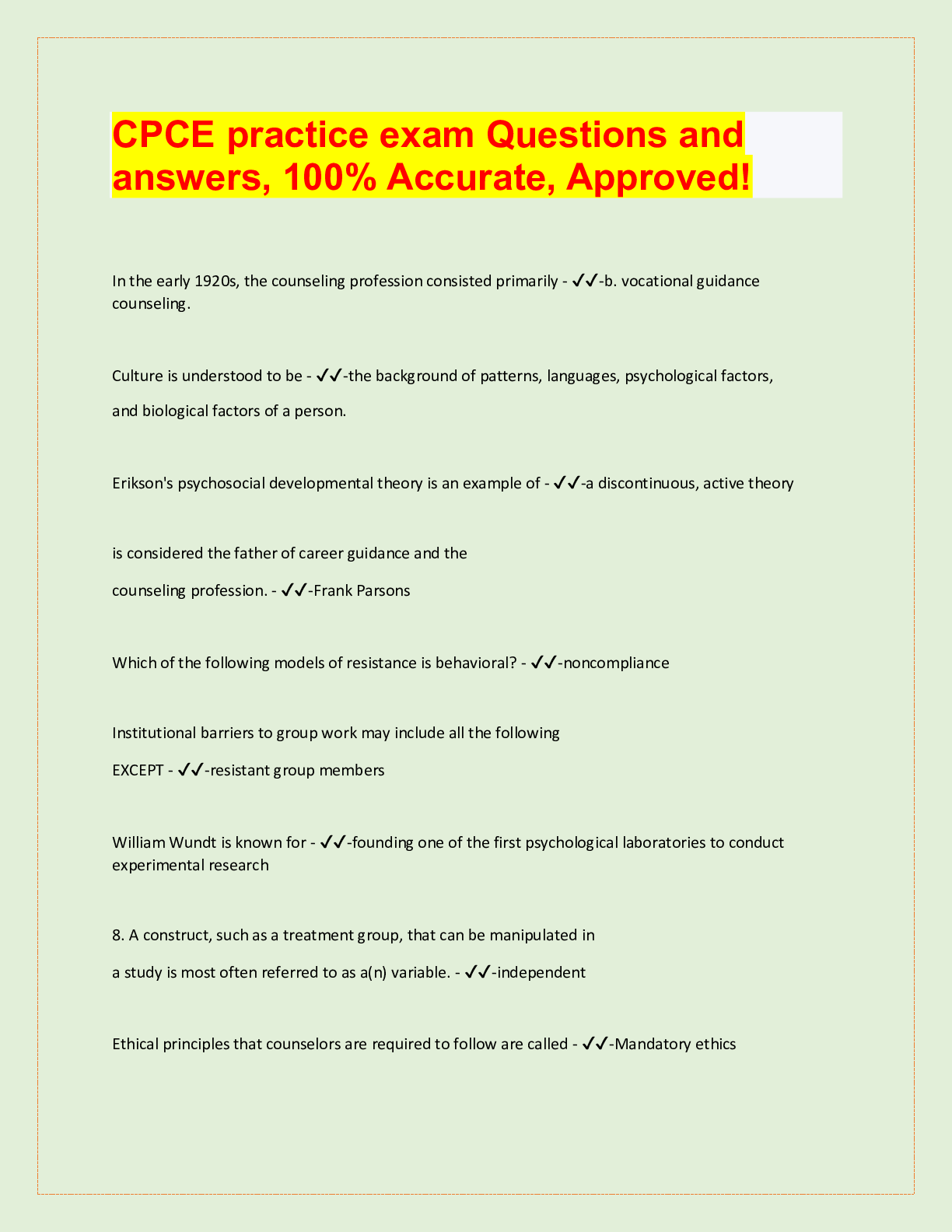English > QUESTIONS & ANSWERS > Southern New Hampshire University ENG 122 SOPHIA English Comosition I Unit 3 Challenge 2 (All)
Southern New Hampshire University ENG 122 SOPHIA English Comosition I Unit 3 Challenge 2
Document Content and Description Below
Southern New Hampshire University ENG 122 SOPHIA English Comosition I Unit 3 Challenge 2 English Composition I Unit 3 Challenge 2 1.1 Which of the statements accurately describes the revision pro... cess? a.) It asks a writer to evaluate how successfully the entire piece of writing supports their main idea. b.) It often involves discarding what you have already written and starting over from scratch. c.) It can be done much more quickly than editing or proofreading because it is less detailoriented. d.) It should only be done by more experienced writers, or by those experiencing writer's block. 1.2 In what way is the purpose of revising different from the purpose of editing or proofreading? a.) Revising focuses on improving the overall structure of a piece of writing and assessing if the goals have been met. b.) Revising focuses on cleaning up any grammatical or spelling errors so that the finished piece of writing is polished and professional. c.) Revising focuses on improving a piece of writing by refining the structure of sentences. d.) Revising focuses on determining whether editing and proofreading are necessary at all. 1.3 Which of the following is true of the revision process? a.) When revising, a writer should ignore their goals for the piece so that they can view their writing objectively. b.) The revision process asks writers to look for any and all mistakes in their work. c.) It often results in more comprehensive changes to the content of a piece of writing than editing or proofreading generate. d.) Revising a piece of writing typically only needs to be done once. 2.1 Alden has completed drafting his essay and is now ready to revise. He wants to begin by revising with a focus on the organizational structure. What should he be looking for as he reviews his essay? a.) Whether his evidence is accurately cited. b.) Whether his essay meets all of the formatting requirements of the assignment. c.) Whether his thesis statement should be stated in a different way. d.) Whether his ideas flow smoothly throughout the essay so that his readers can easily follow his logic. 2.2 Harmony has completed drafting her essay and is now ready to revise. She wants to begin by revising with a focus on her thesis. What should she do first? a.) Read just her thesis statement. b.) Read her essay through in its entirety. c.) Draft a new thesis statement and compare it to her old one. d.) Read her introductory paragraph through three times. 2.3 Herman has completed drafting his essay and is now ready to revise. He wants to begin by revising his body paragraphs for clarity and focus. What question should he ask himself? a.) Does my body paragraph contain more than five sentences? b.) Should my body paragraph include a second main idea? c.) Do I restate my thesis statement in the body paragraph? d.) Are there transitions between sentences that help my ideas to flow? 3.1 What do the five revision strategies discussed in this lesson have in common? a.) They all work equally well for every writer. b.) They all create a sense of distance between you and your writing, which allows you to evaluate your work more objectively. c.) They are all effective strategies on their own, but they are less effective if they're used in combination. d.) They can all be done quickly, enabling you to complete your assignment even if you've mismanaged your time. 3.2 Which revision strategy is most useful for identifying confusing passages in an essay? a.) Managing time wisely b.) Summarizing your ideas c.) Reading aloud d.) Asking questions of your work 3.3 Louisa is unsure whether her audience will be persuaded by her argument. Which revision strategy would most help her improve this aspect of her draft? a.) Managing her time b.) Reading aloud c.) Asking specific questions of her work d.) Revising immediately after finishing drafting 4.1 Which of the following is an example of constructive feedback? a.) "This paragraph made no sense to me whatsoever." b.) "This essay is great; I don't think it needs any improvement." c.) "I really think you should start over from scratch." d.) "The wording of the last two sentences is confusing." 4.2 Which of the following is an example of constructive feedback? a.) "Your whole essay needs to change. It just isn't engaging." b.) "This is a good essay; I think it’s fine the way it is." c.) "I think you could do more to improve this essay." d.) "I think this paragraph could use a little more detail." 4.3 Which of the following is an example of non-constructive feedback? a.) "I'm confused by this statement— can you add an example?" b.) "I recommend adding some evidence to back up the claim in this paragraph." c.) "This sentence is a bit vague. Maybe you could reword it to make it clearer." d.) "I'm really impressed by this essay; you have a knack for writing." [Show More]
Last updated: 1 year ago
Preview 1 out of 3 pages
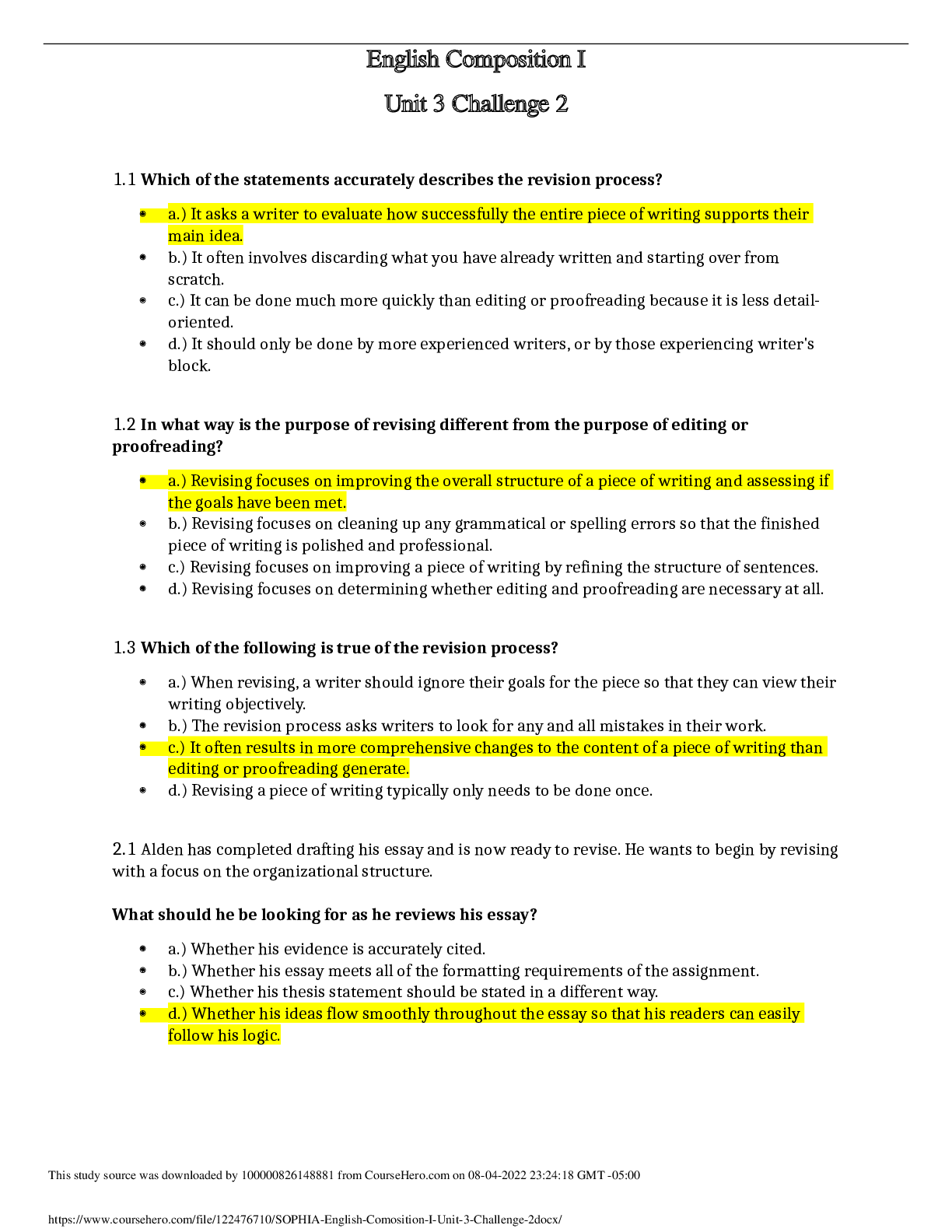
Reviews( 0 )
Document information
Connected school, study & course
About the document
Uploaded On
Aug 05, 2022
Number of pages
3
Written in
Additional information
This document has been written for:
Uploaded
Aug 05, 2022
Downloads
0
Views
169
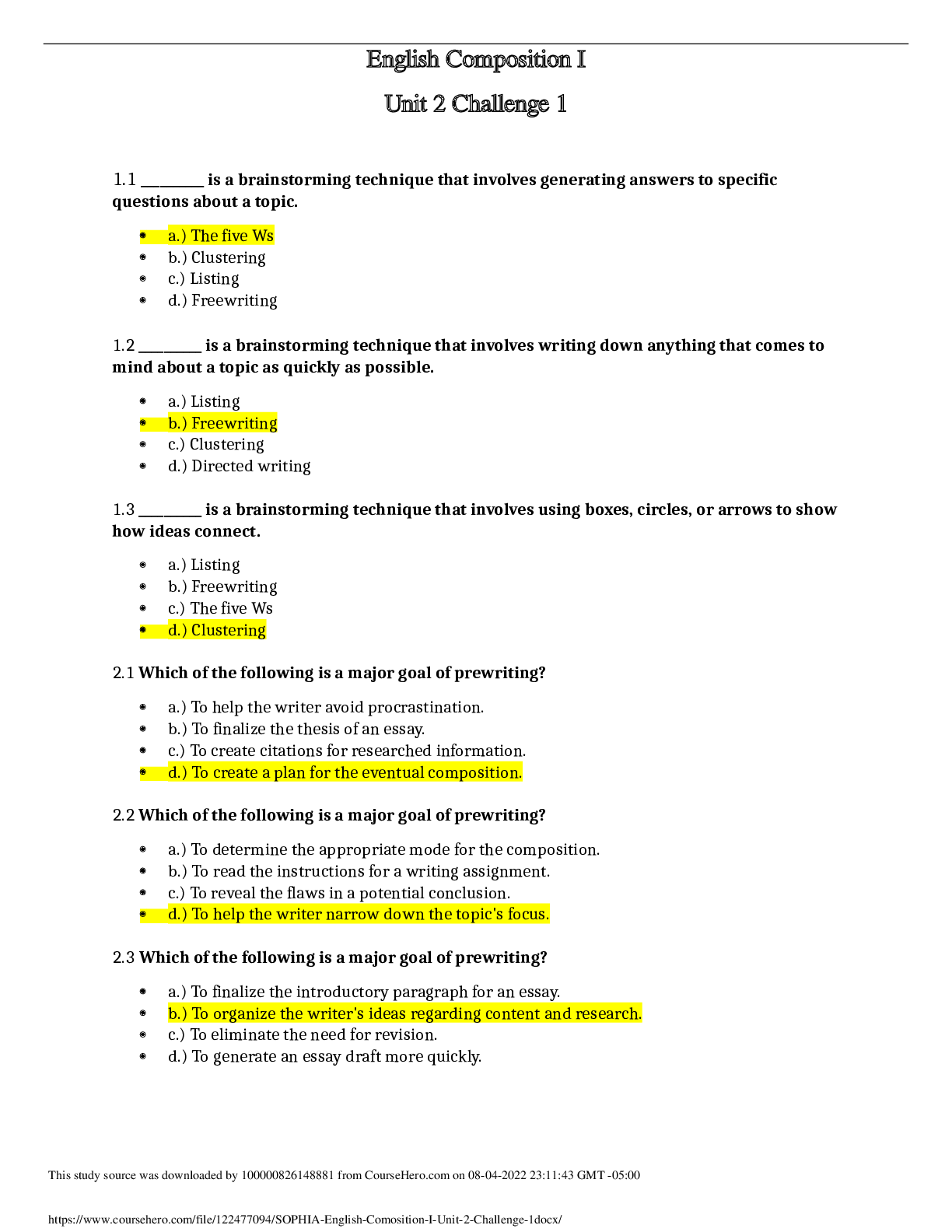

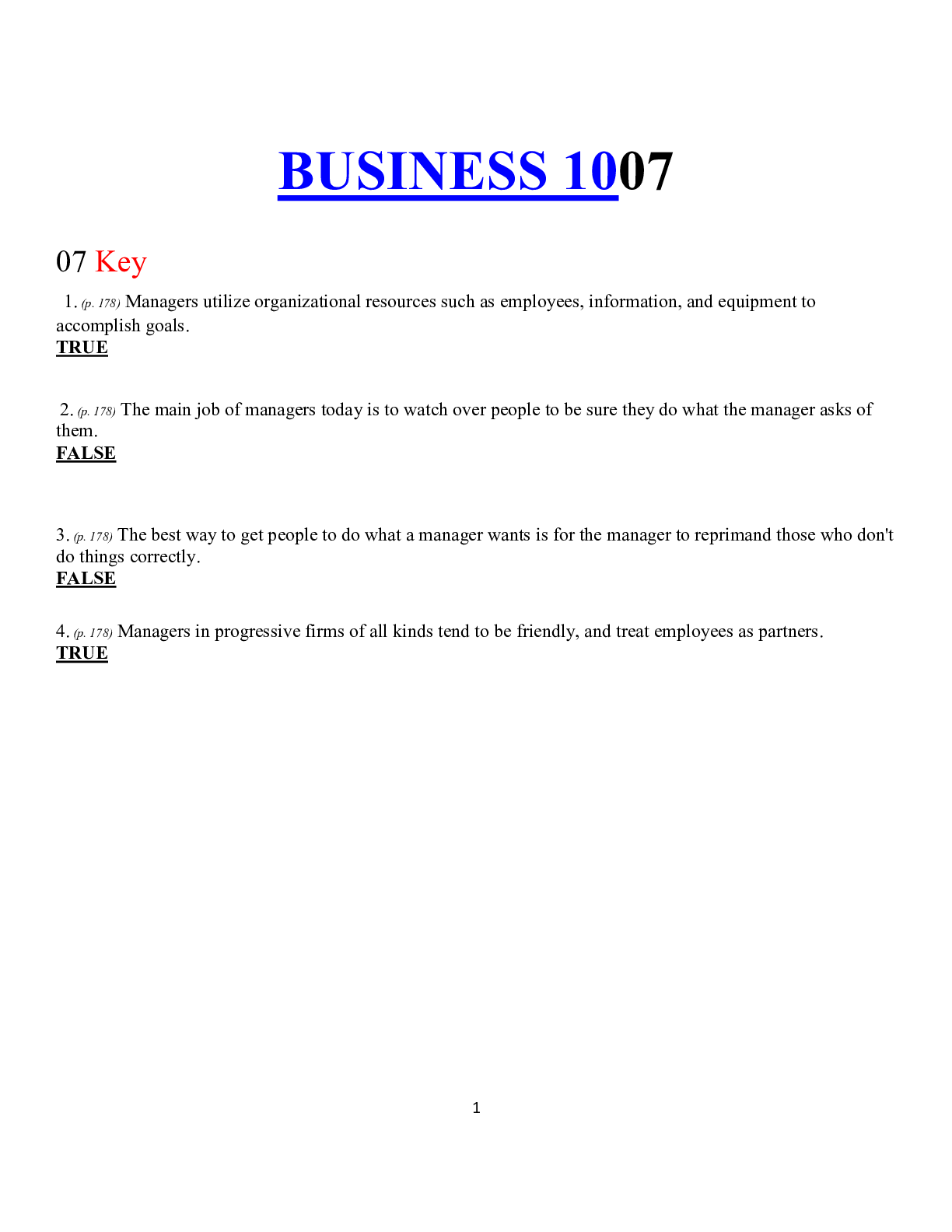
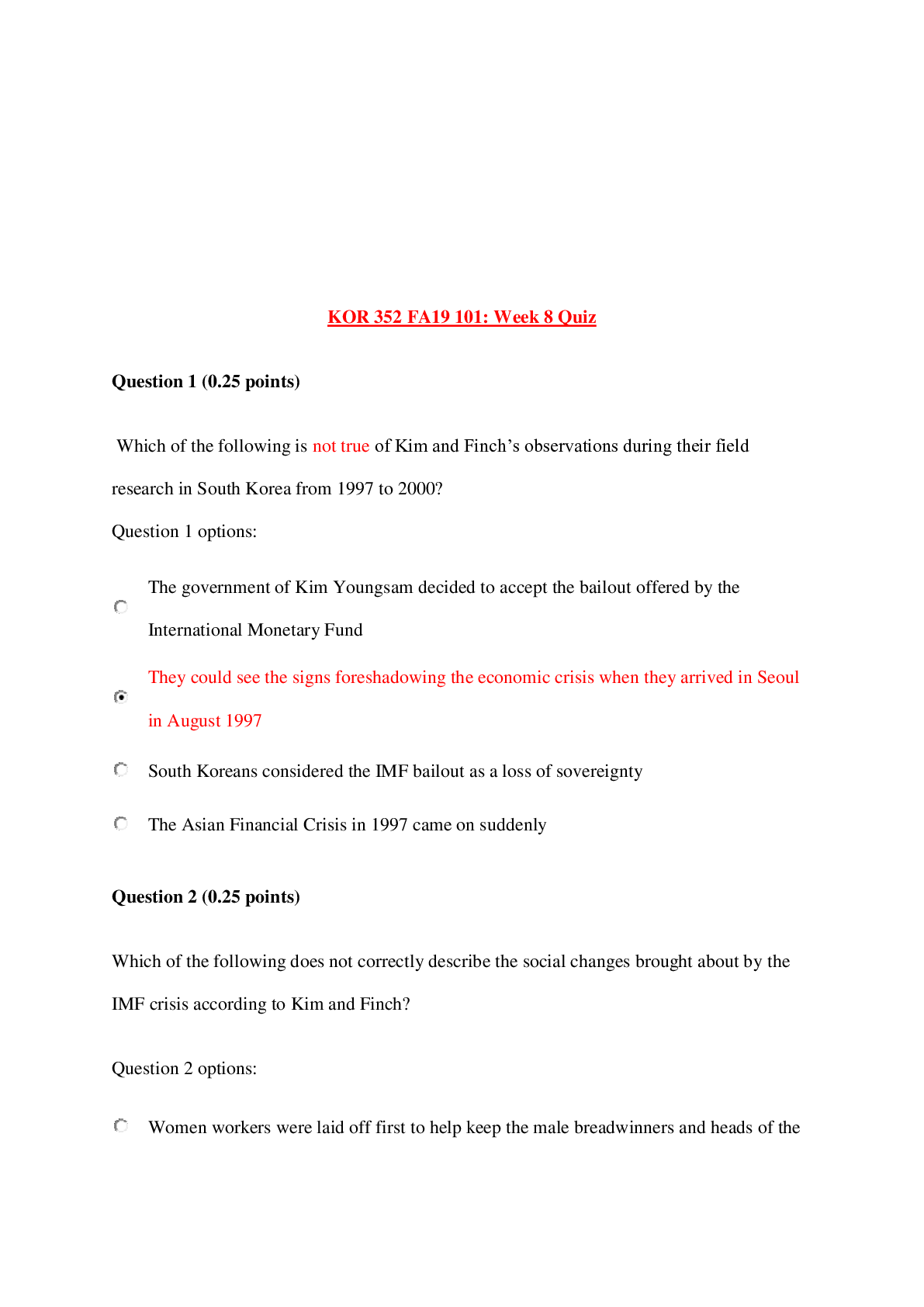
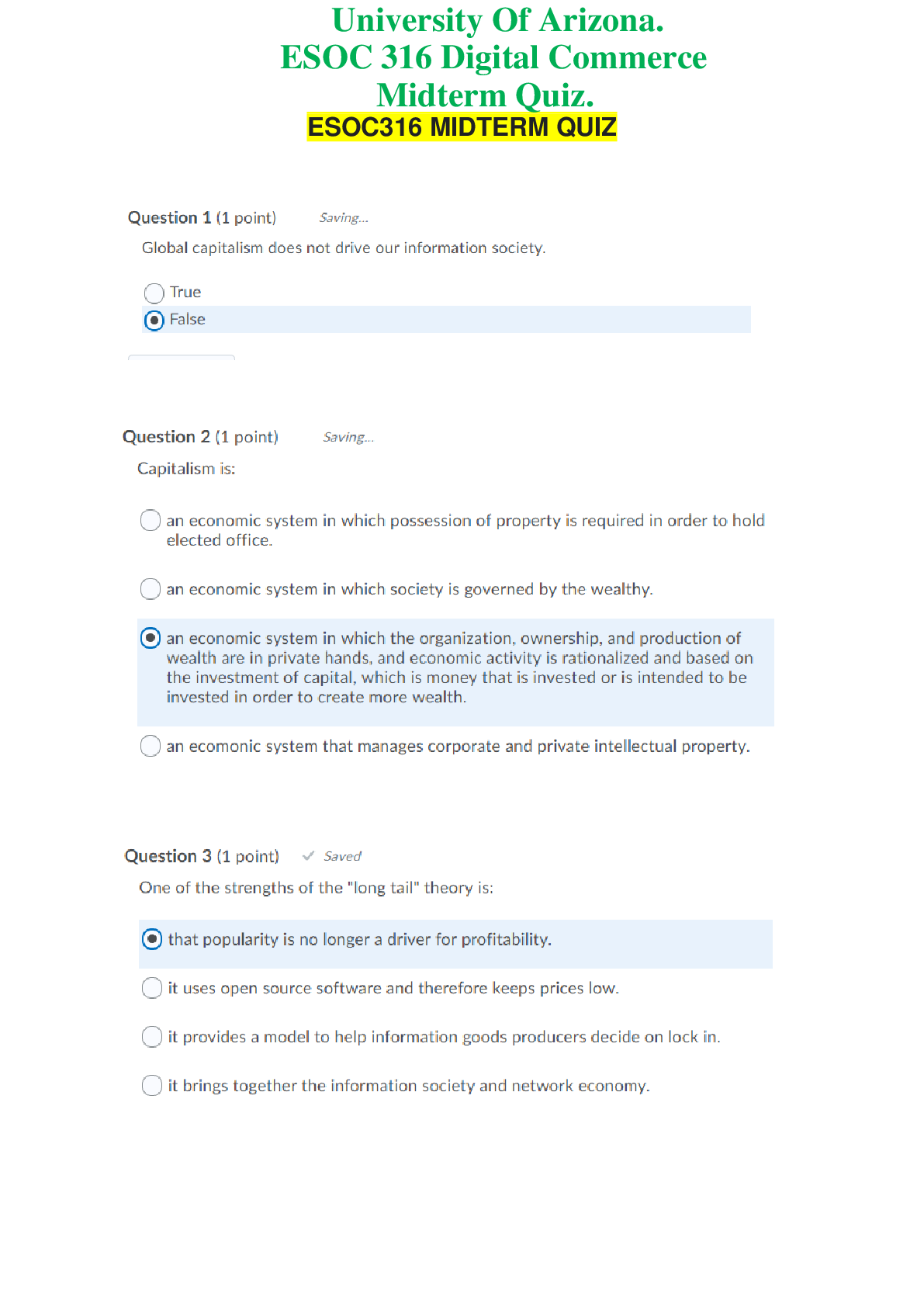
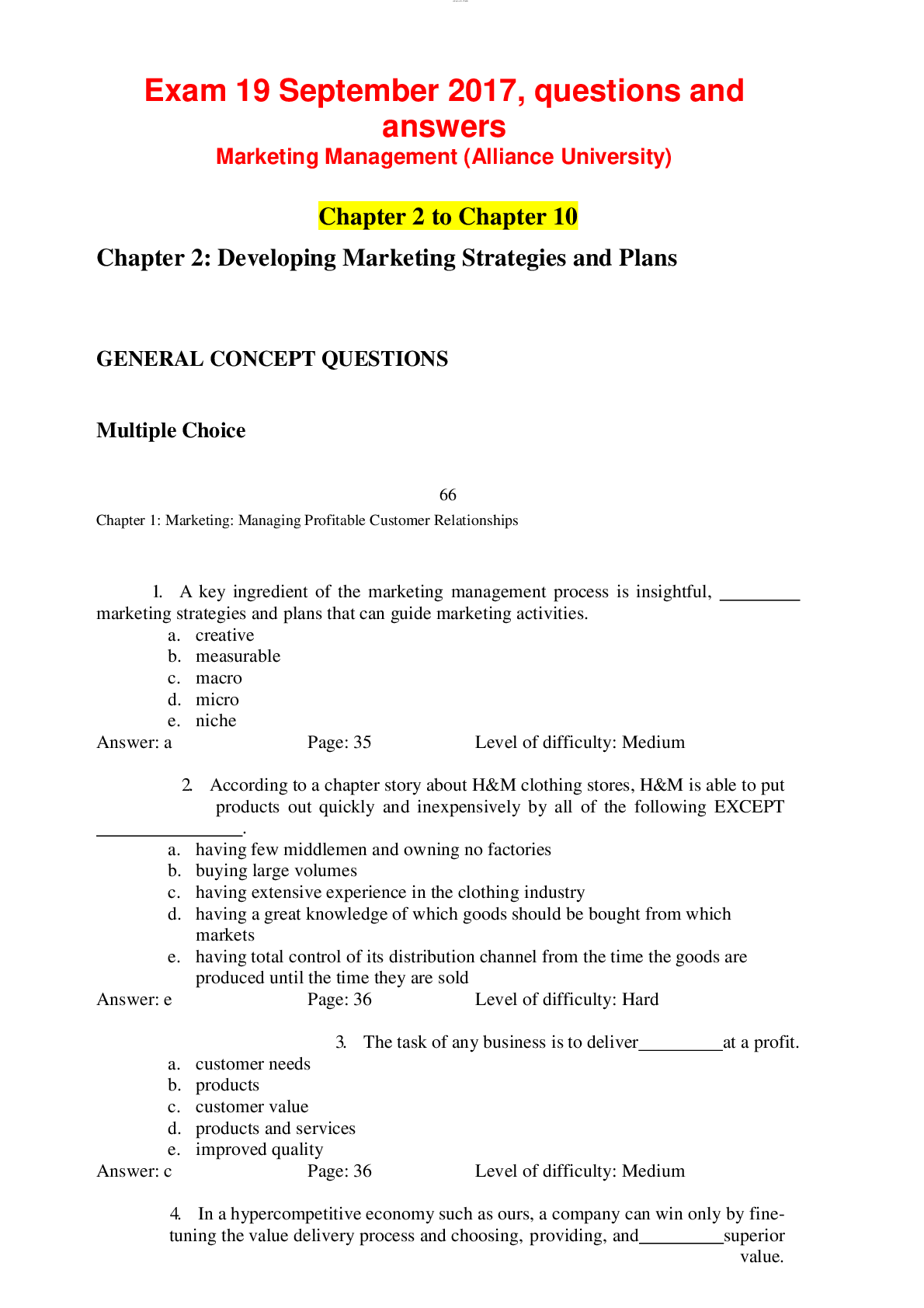
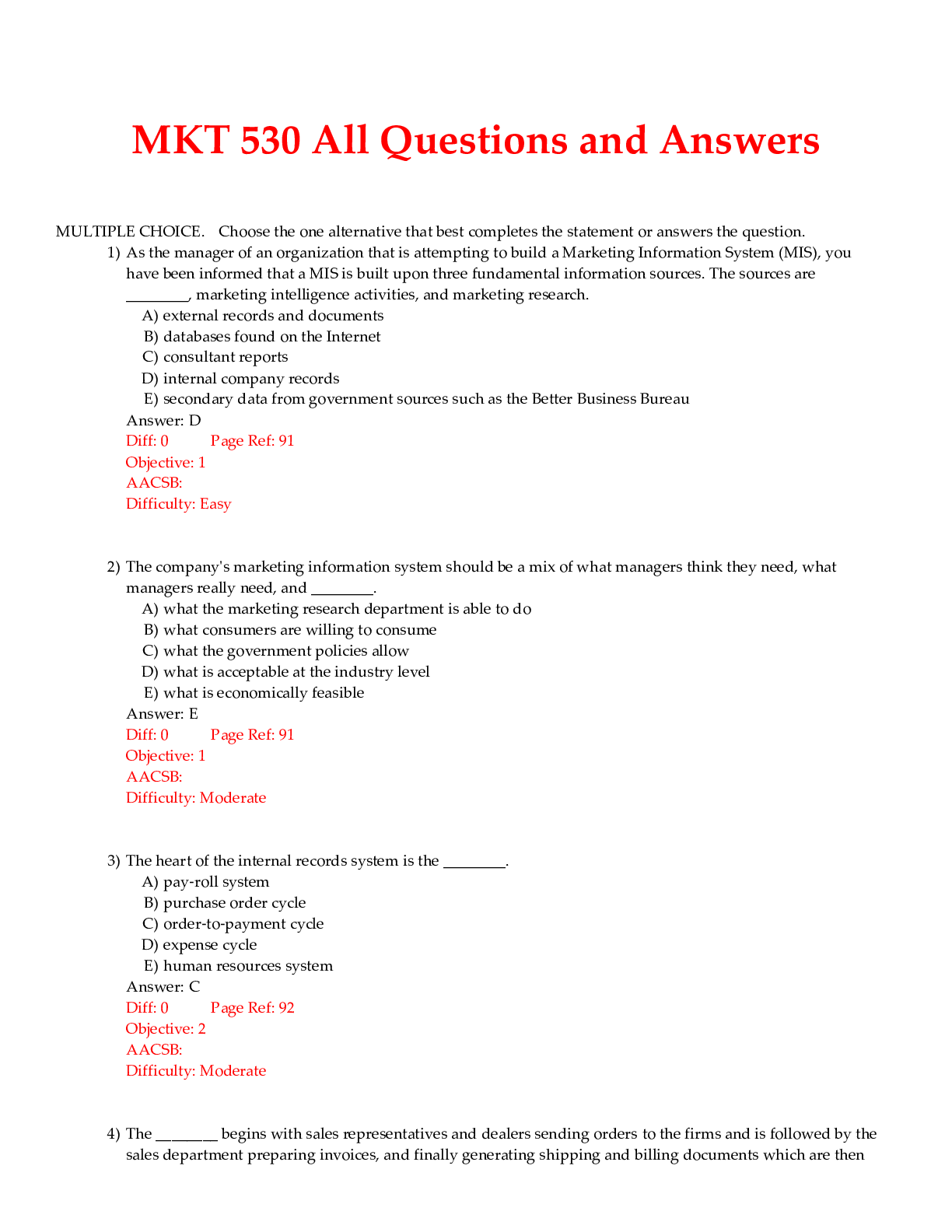
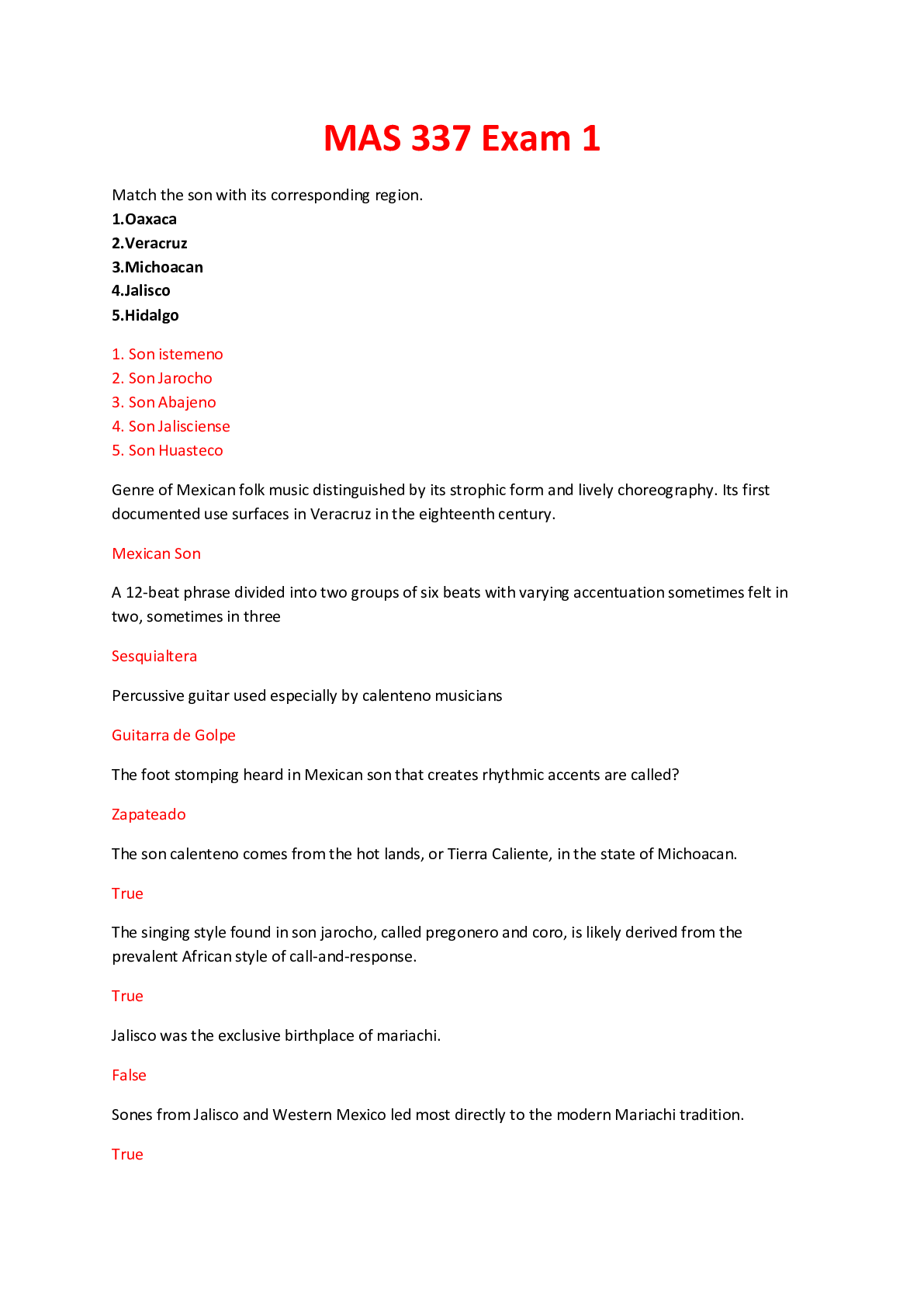
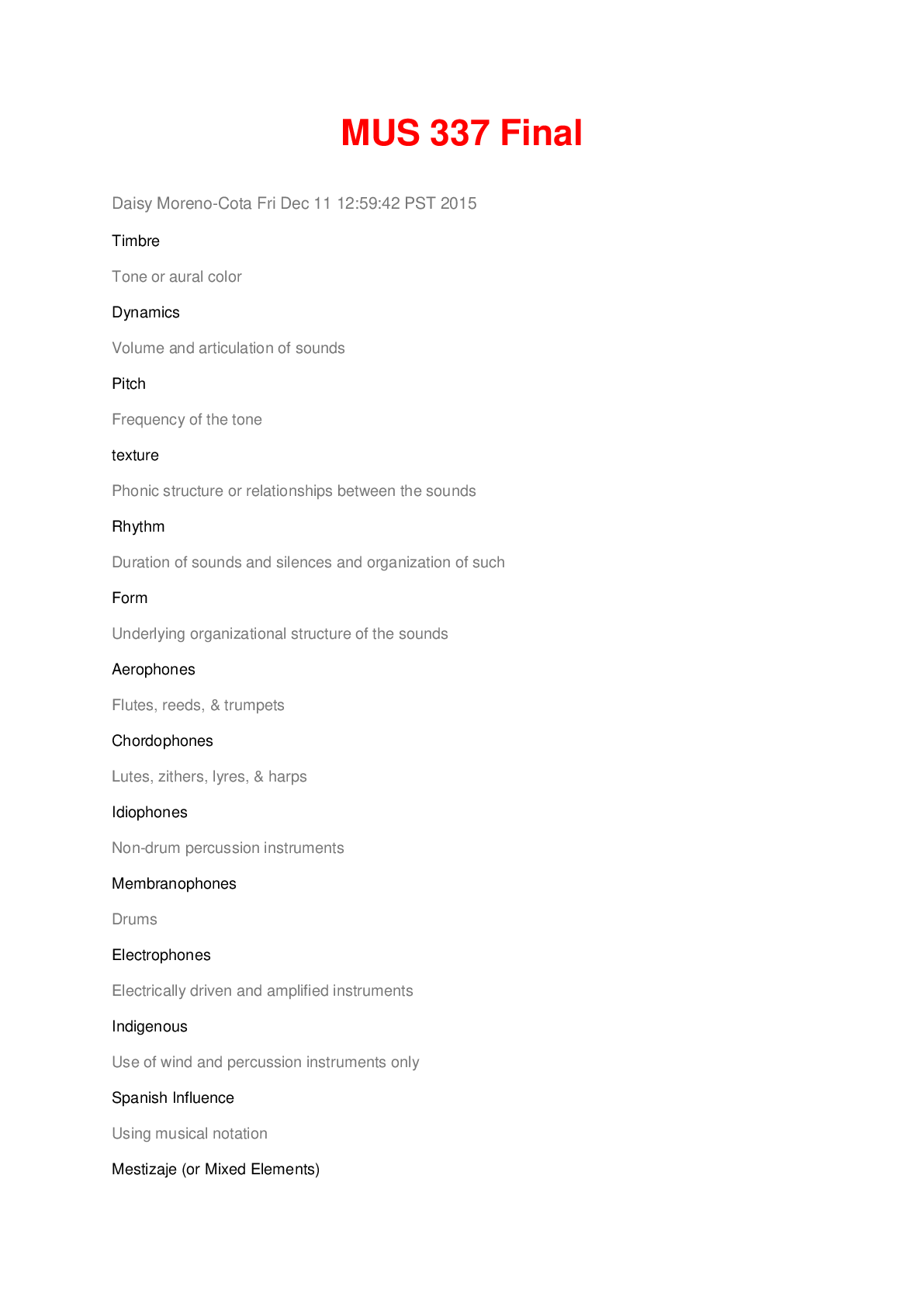
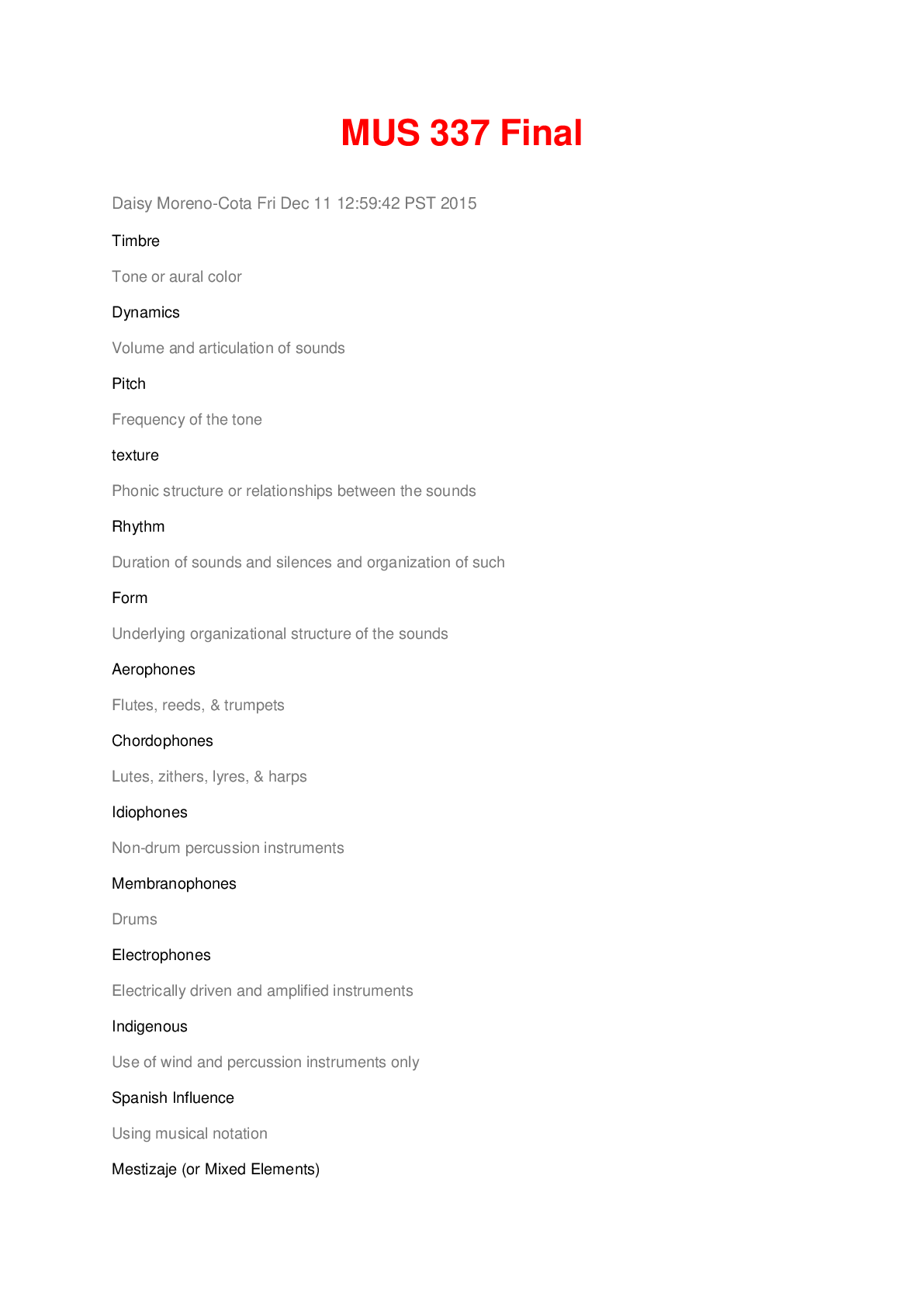
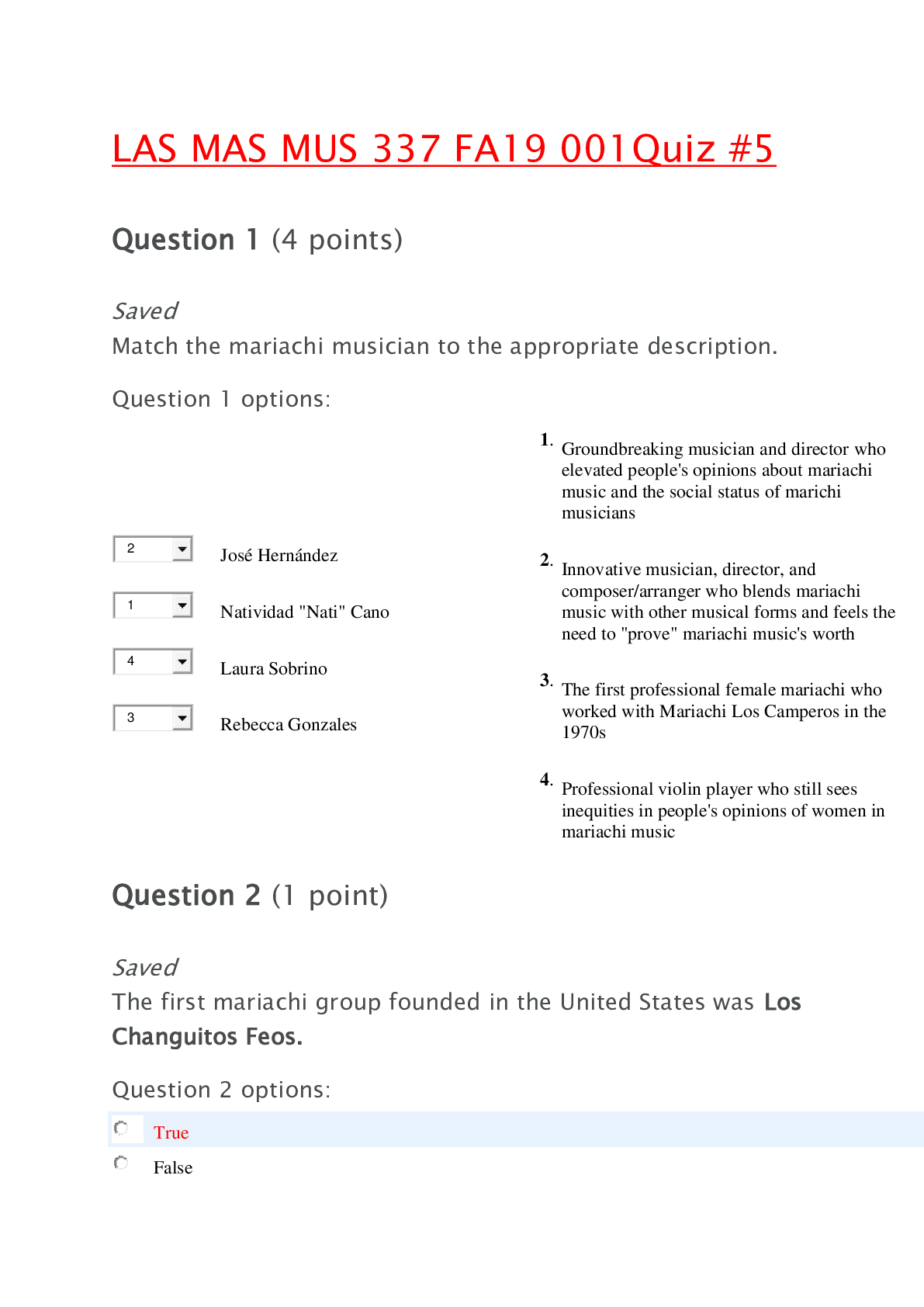
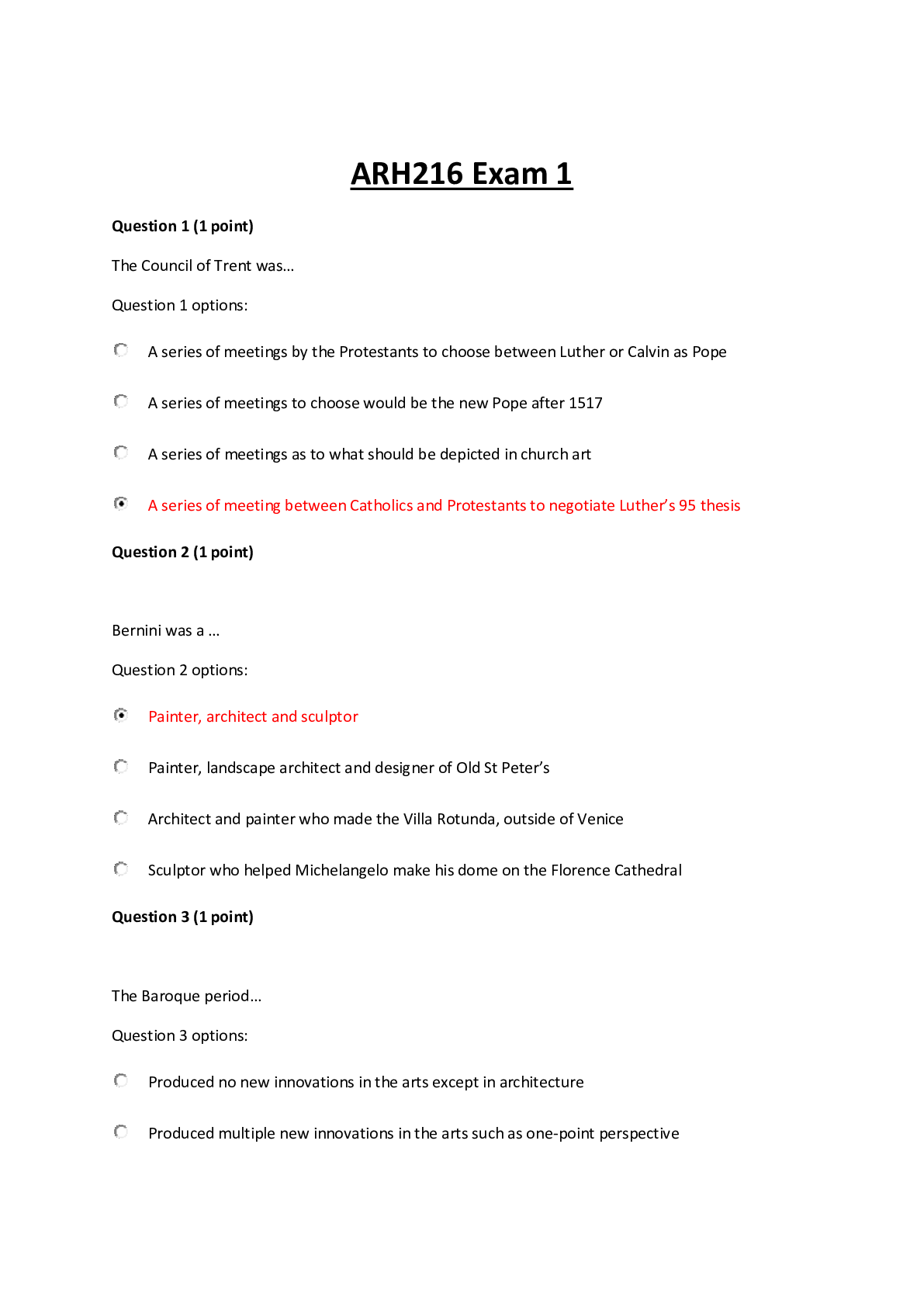
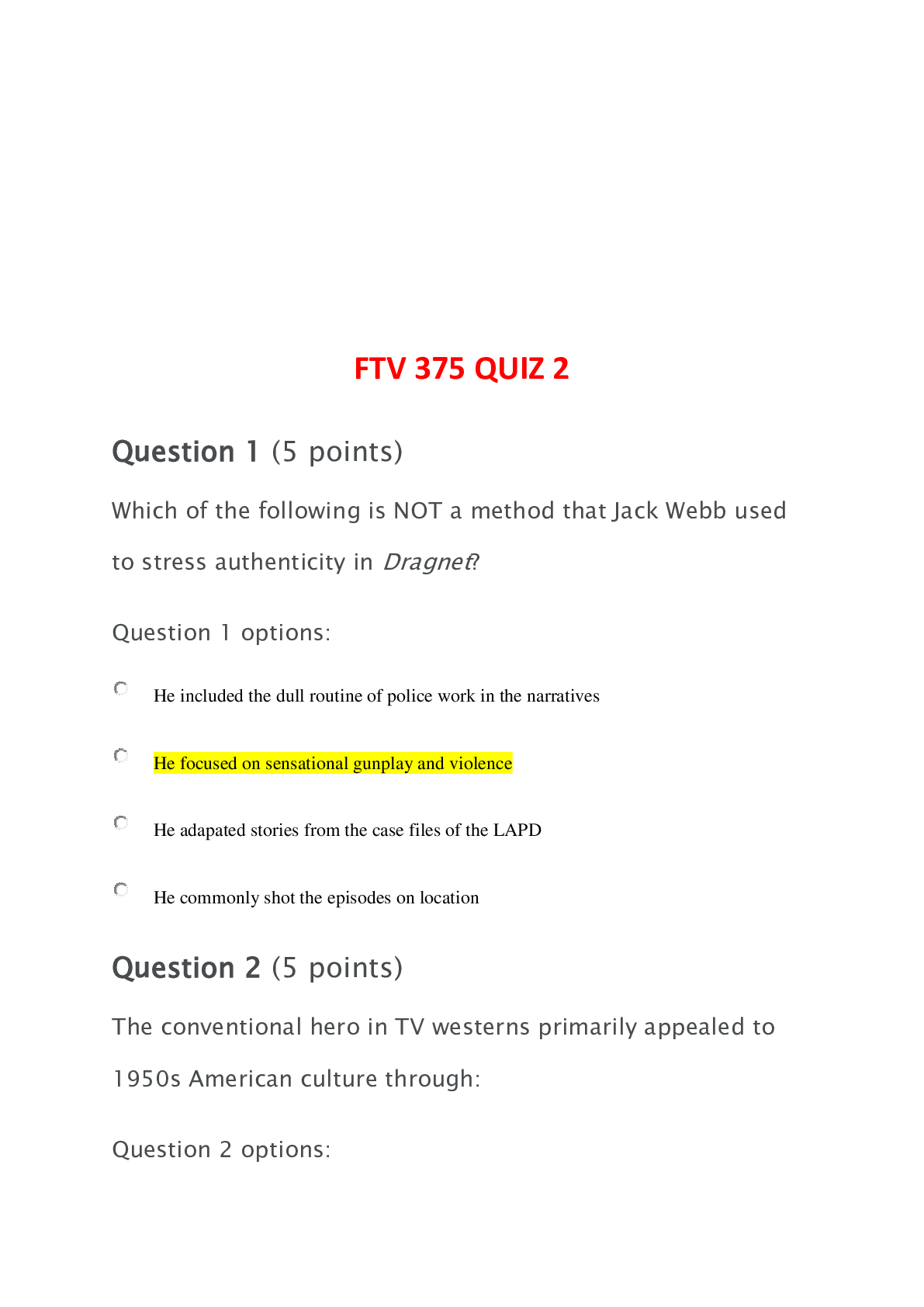
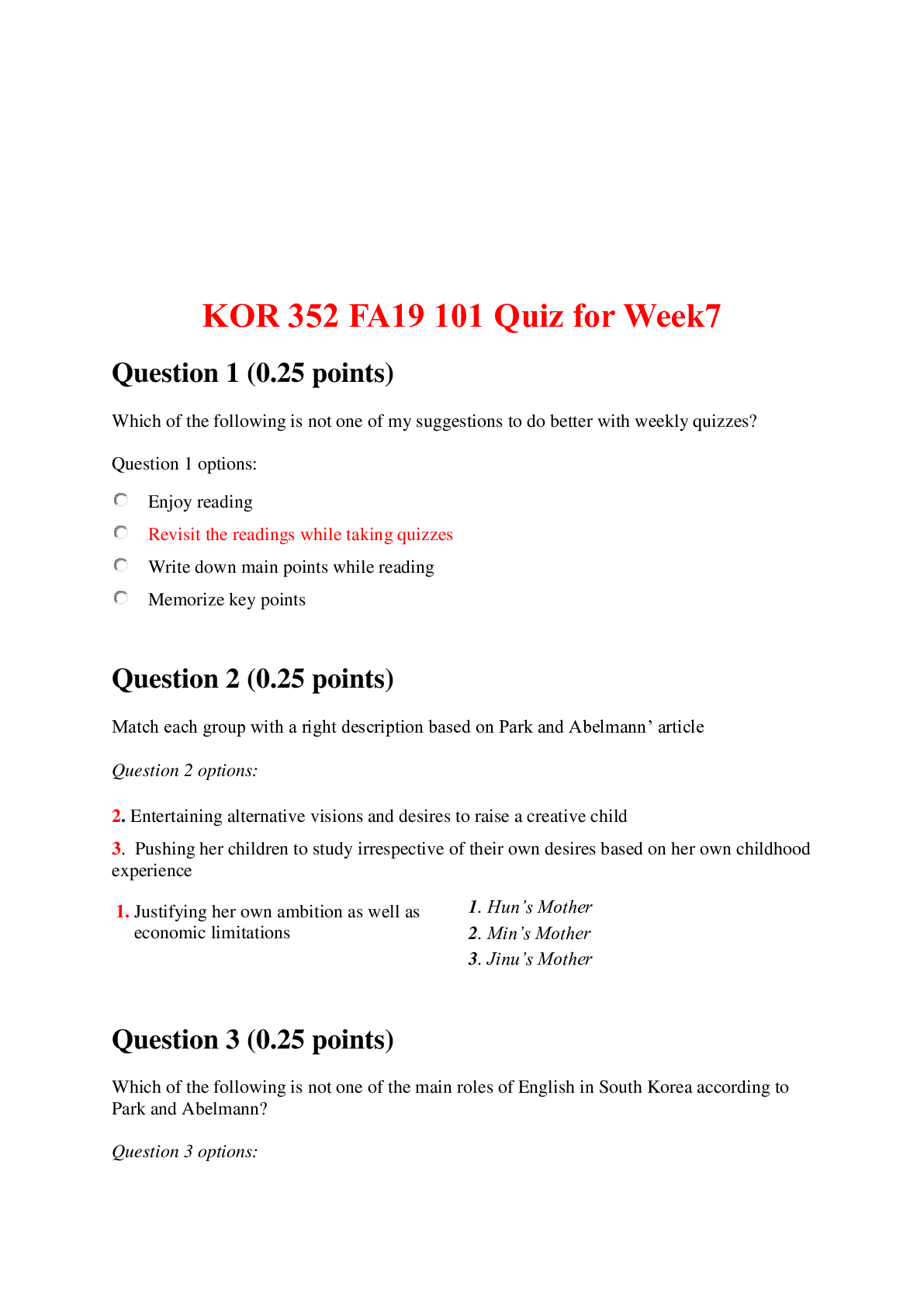
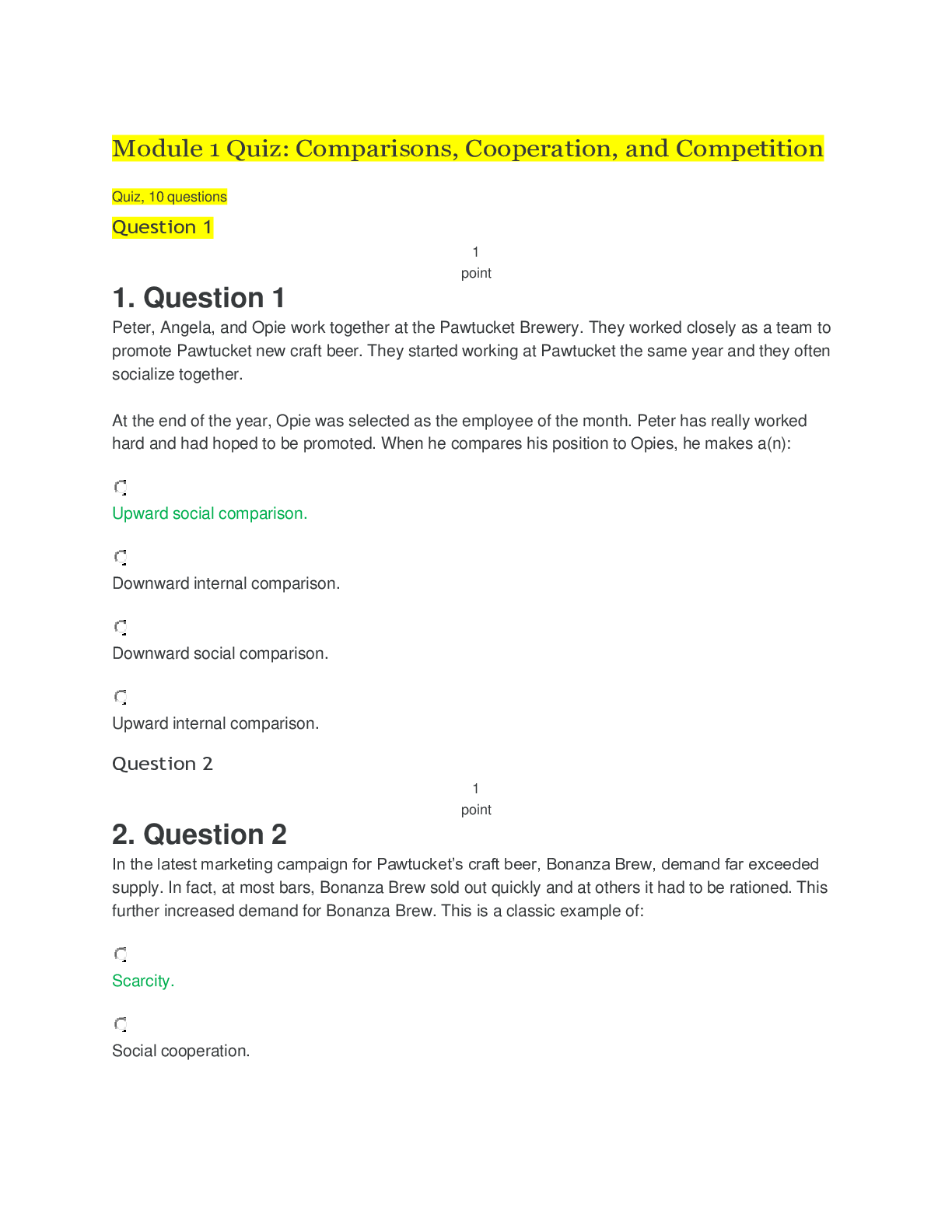
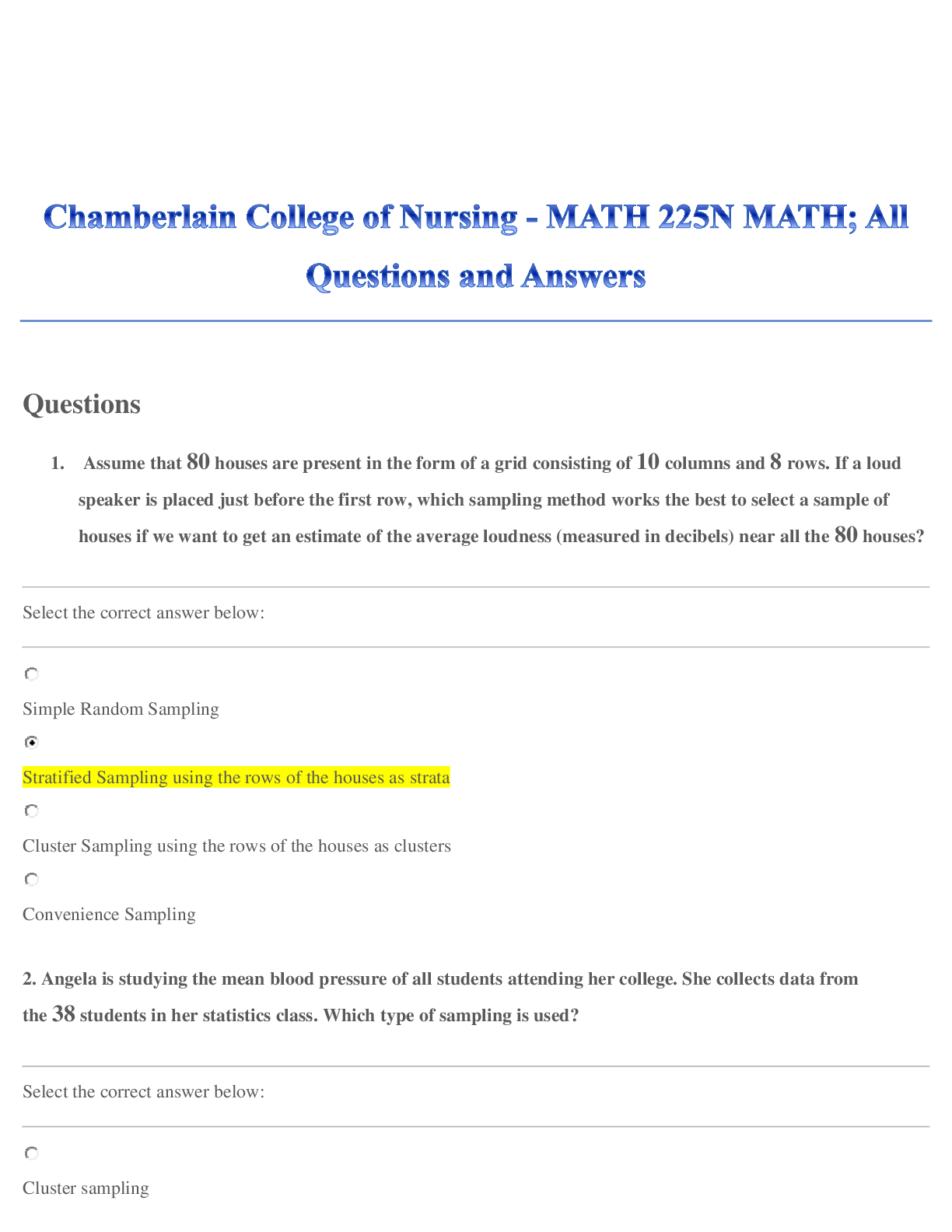
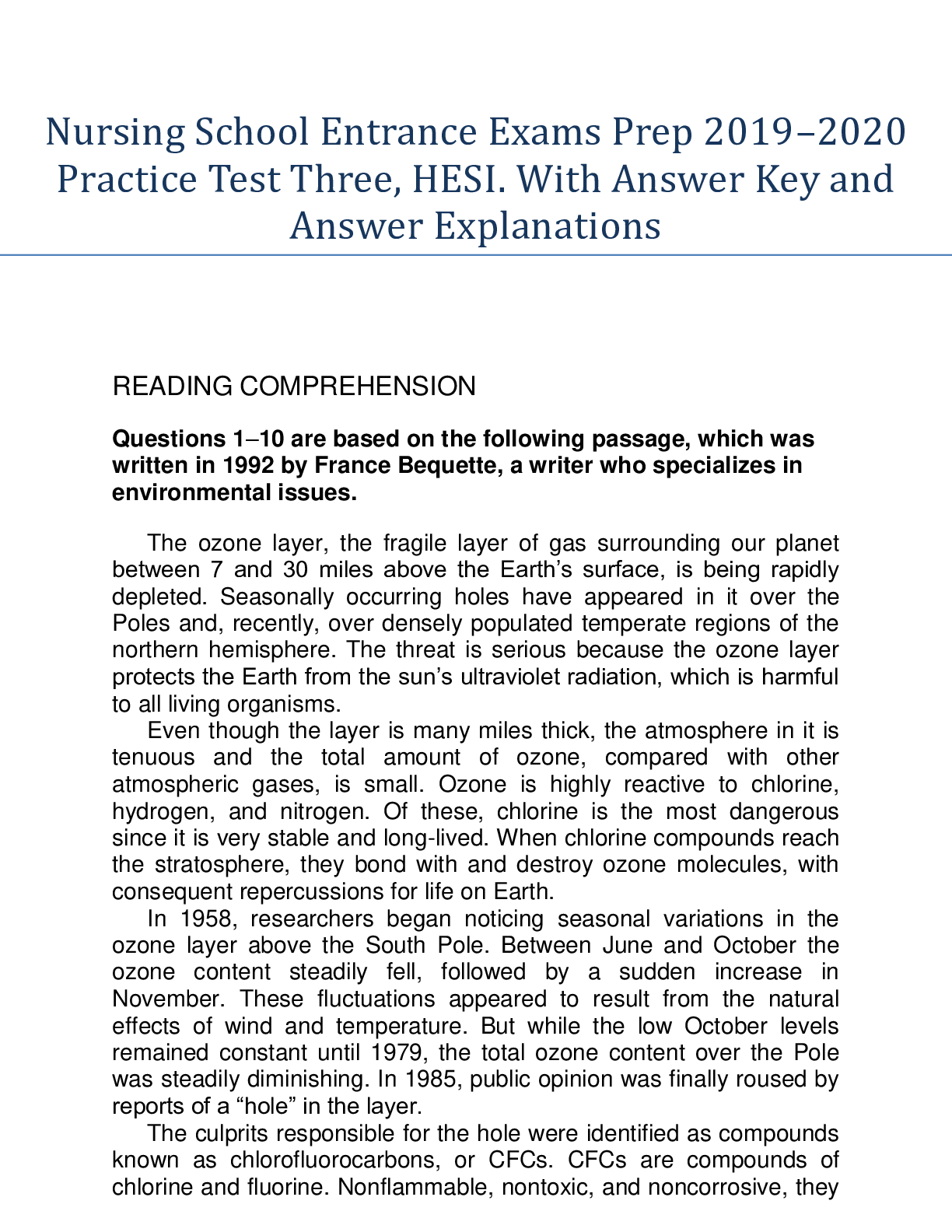
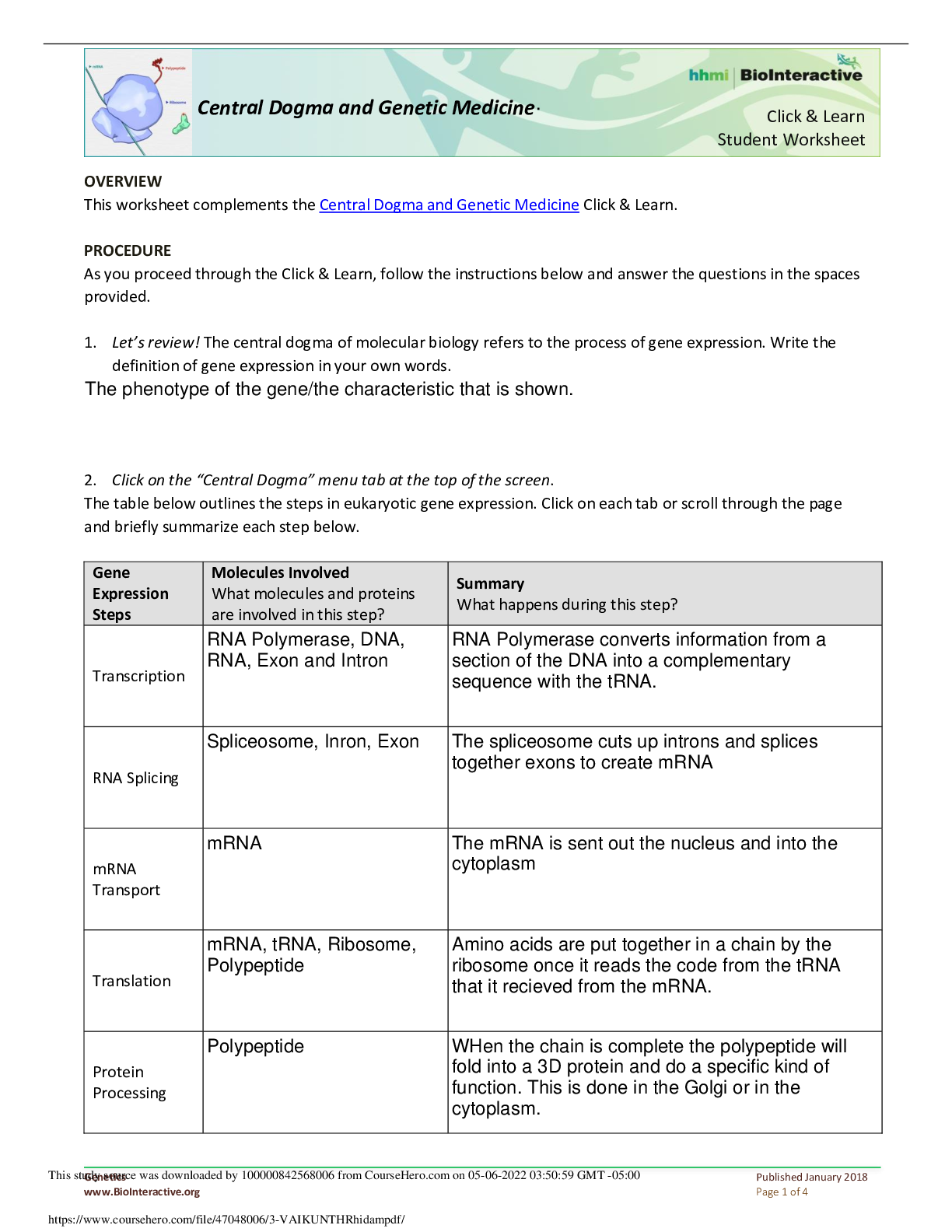
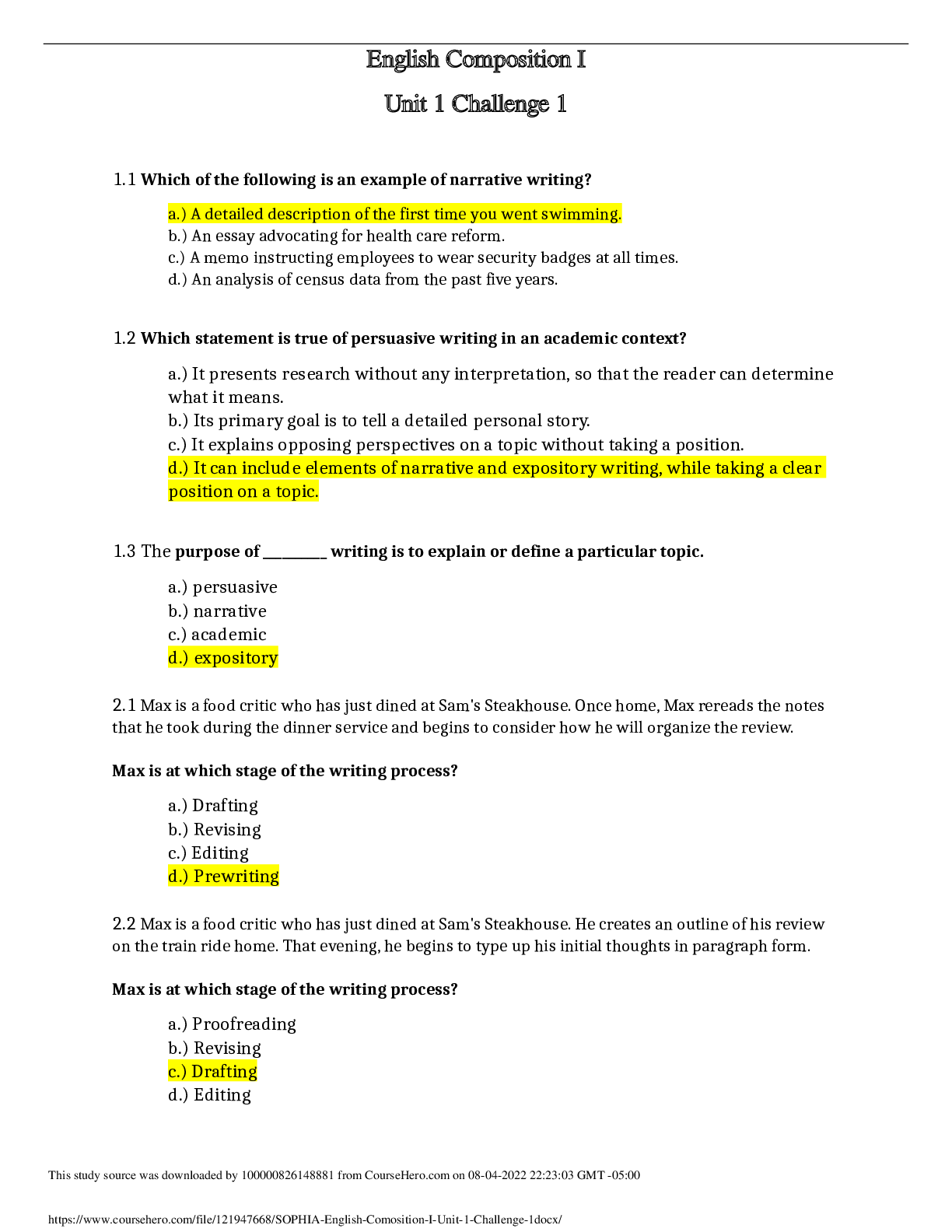
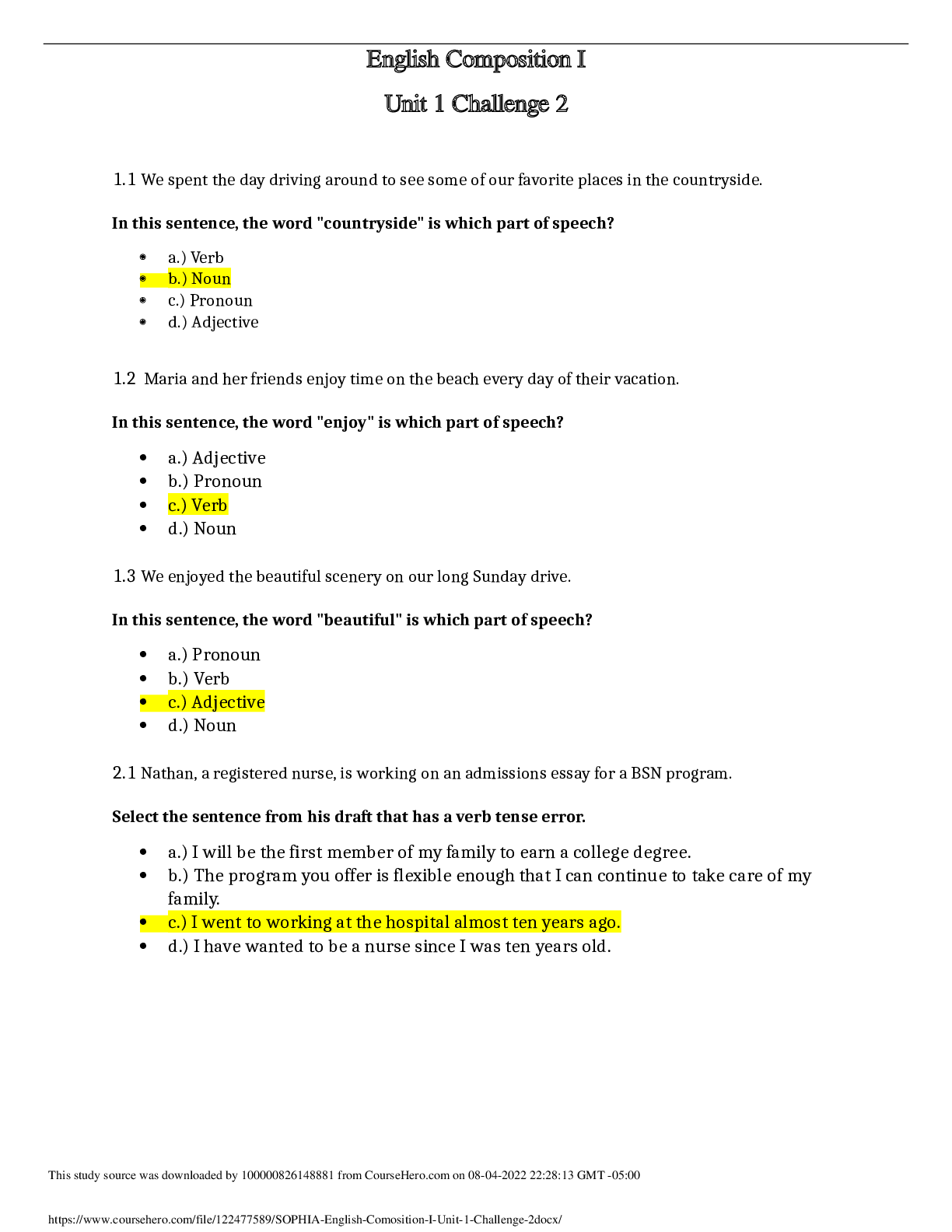
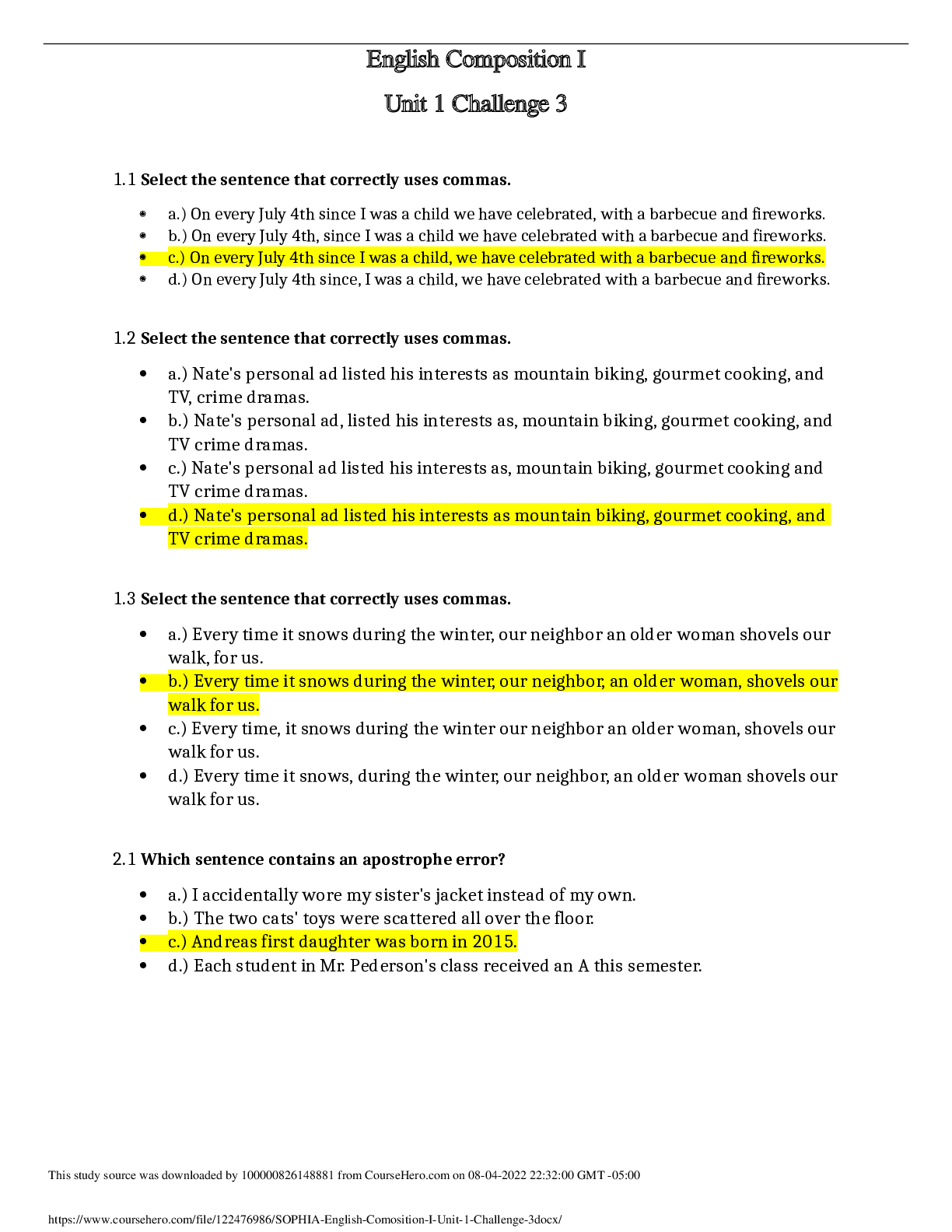
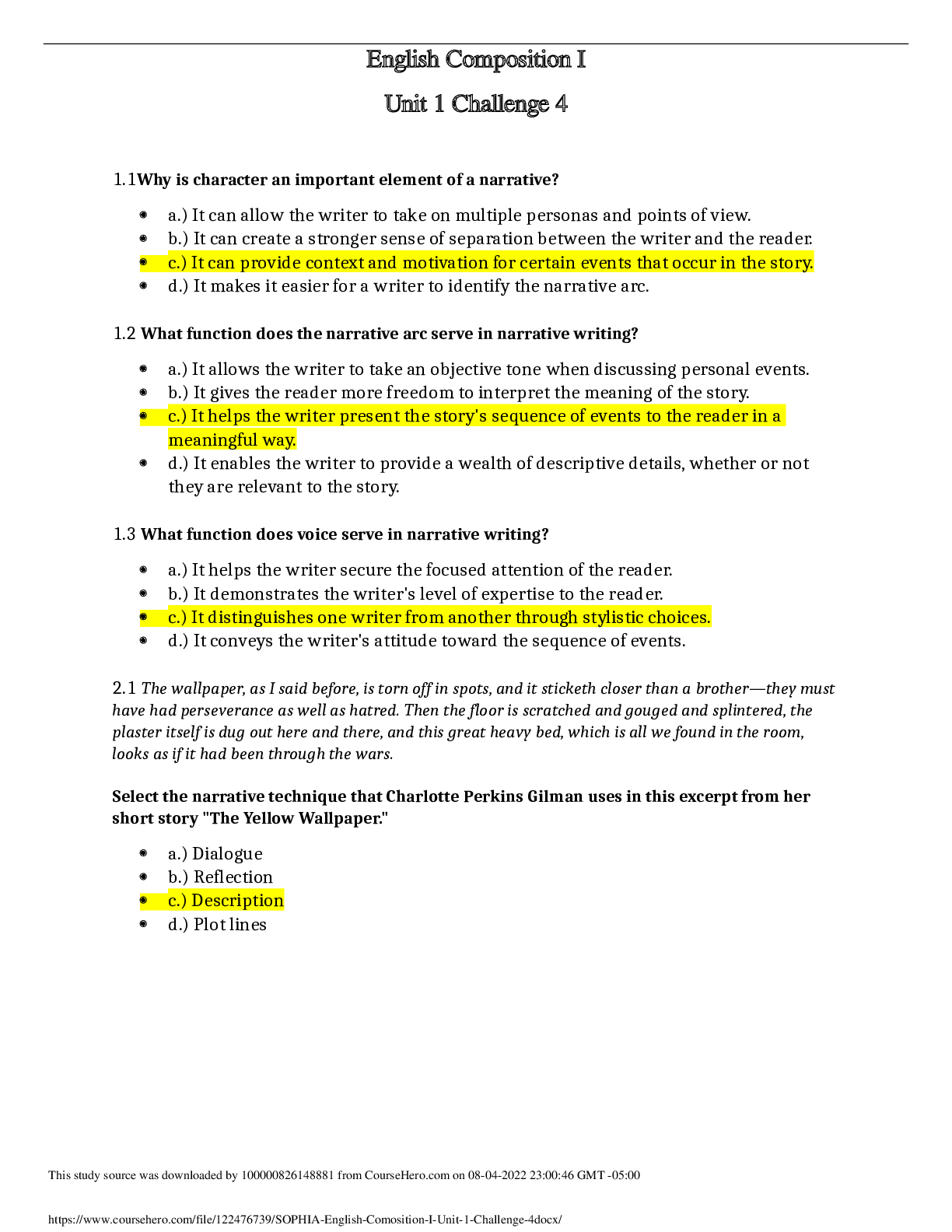
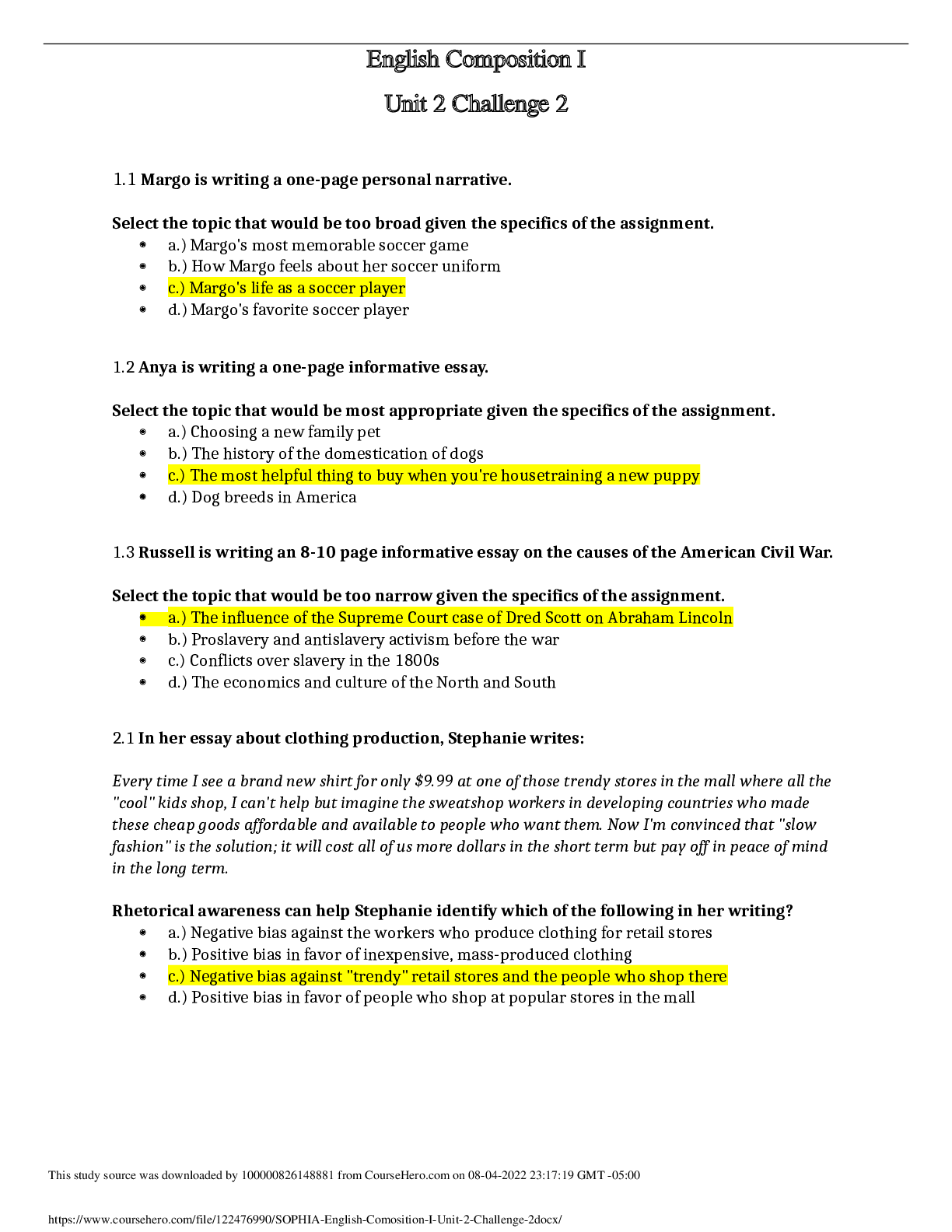
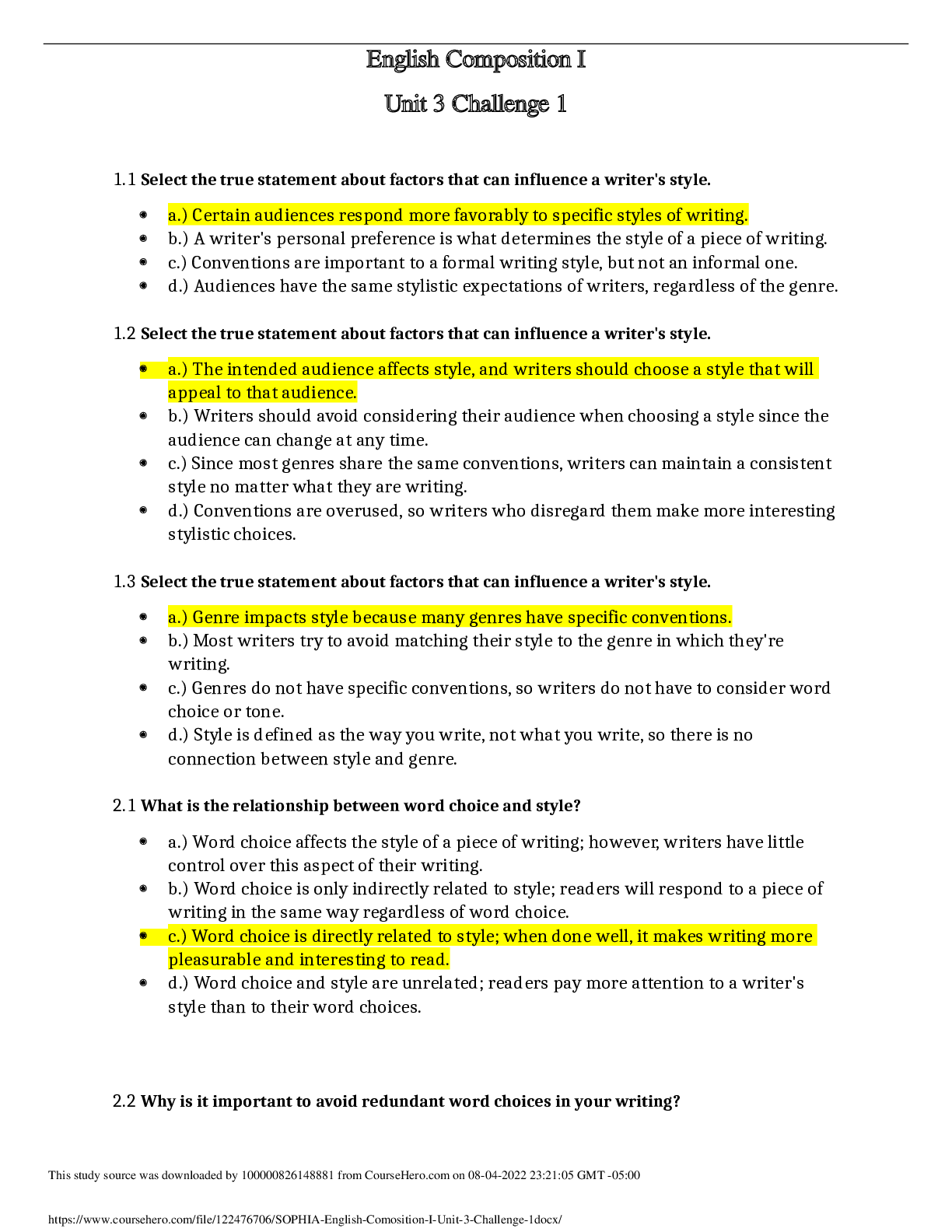
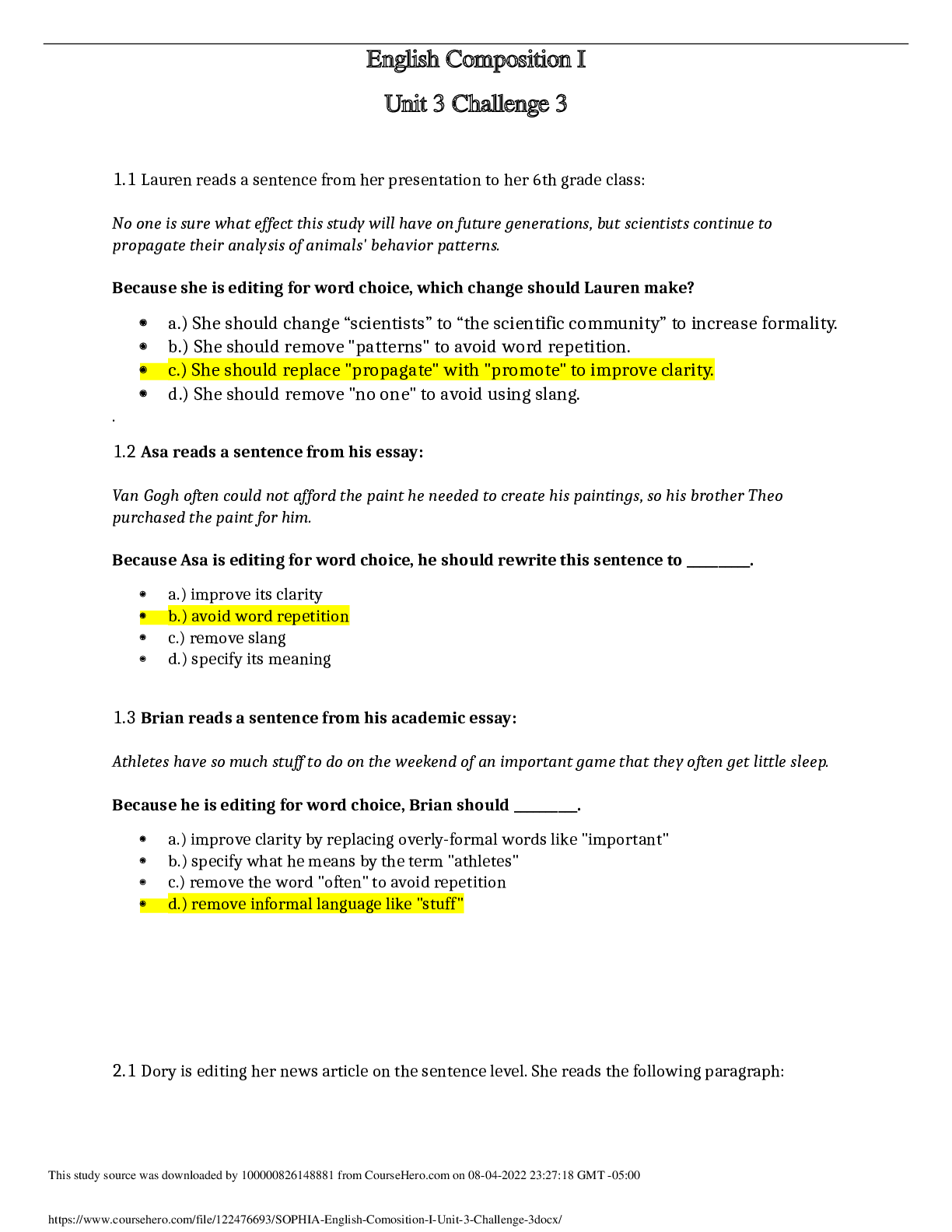
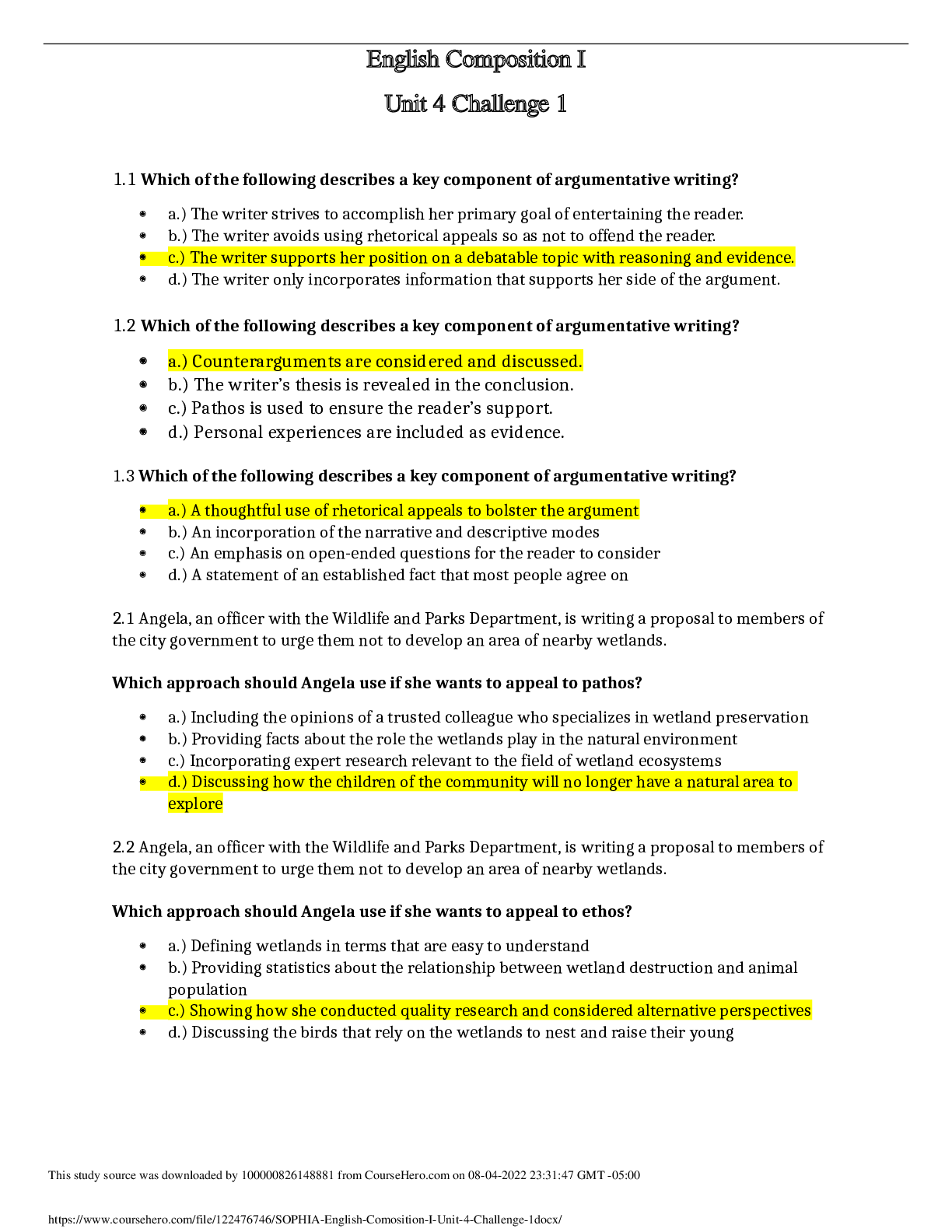
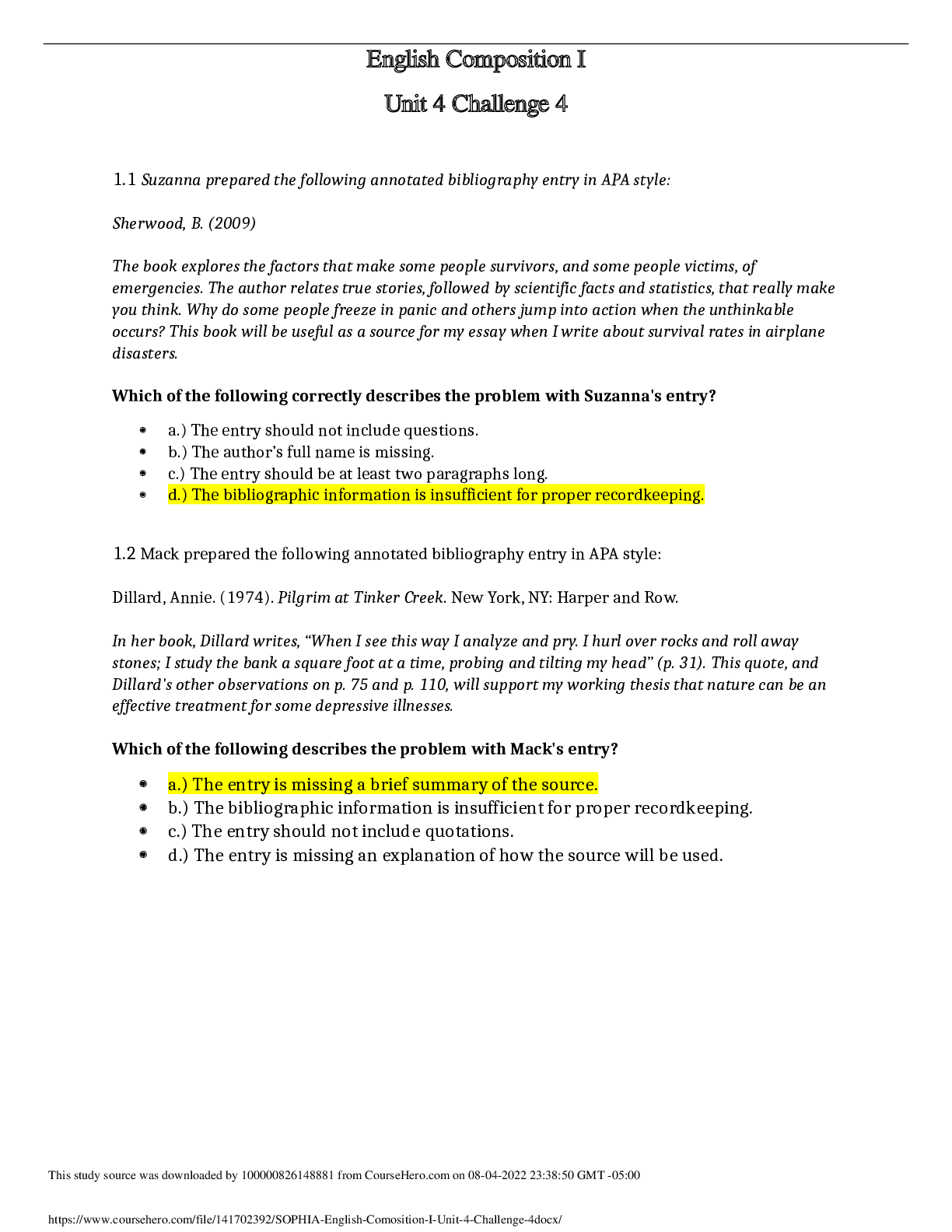
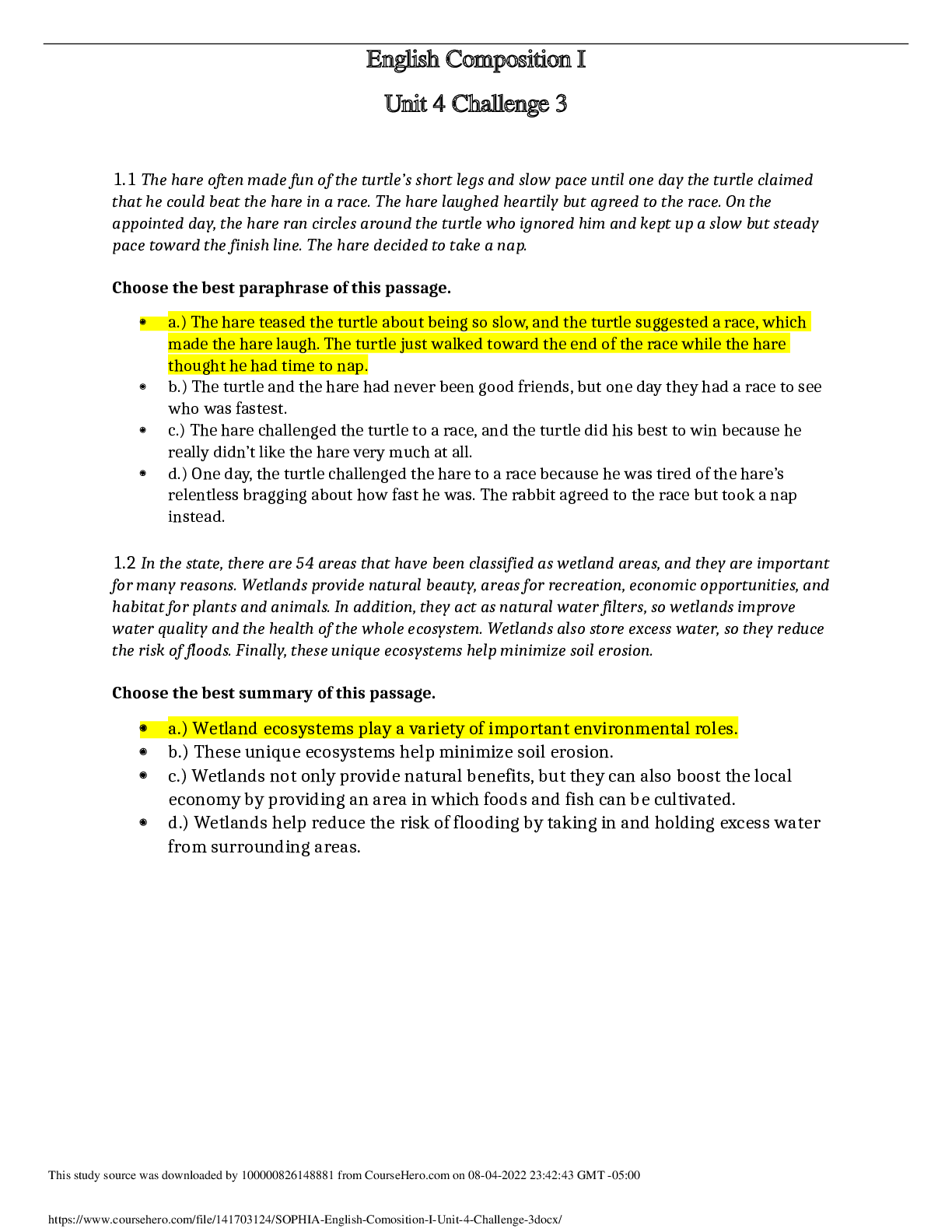


.png)
.png)
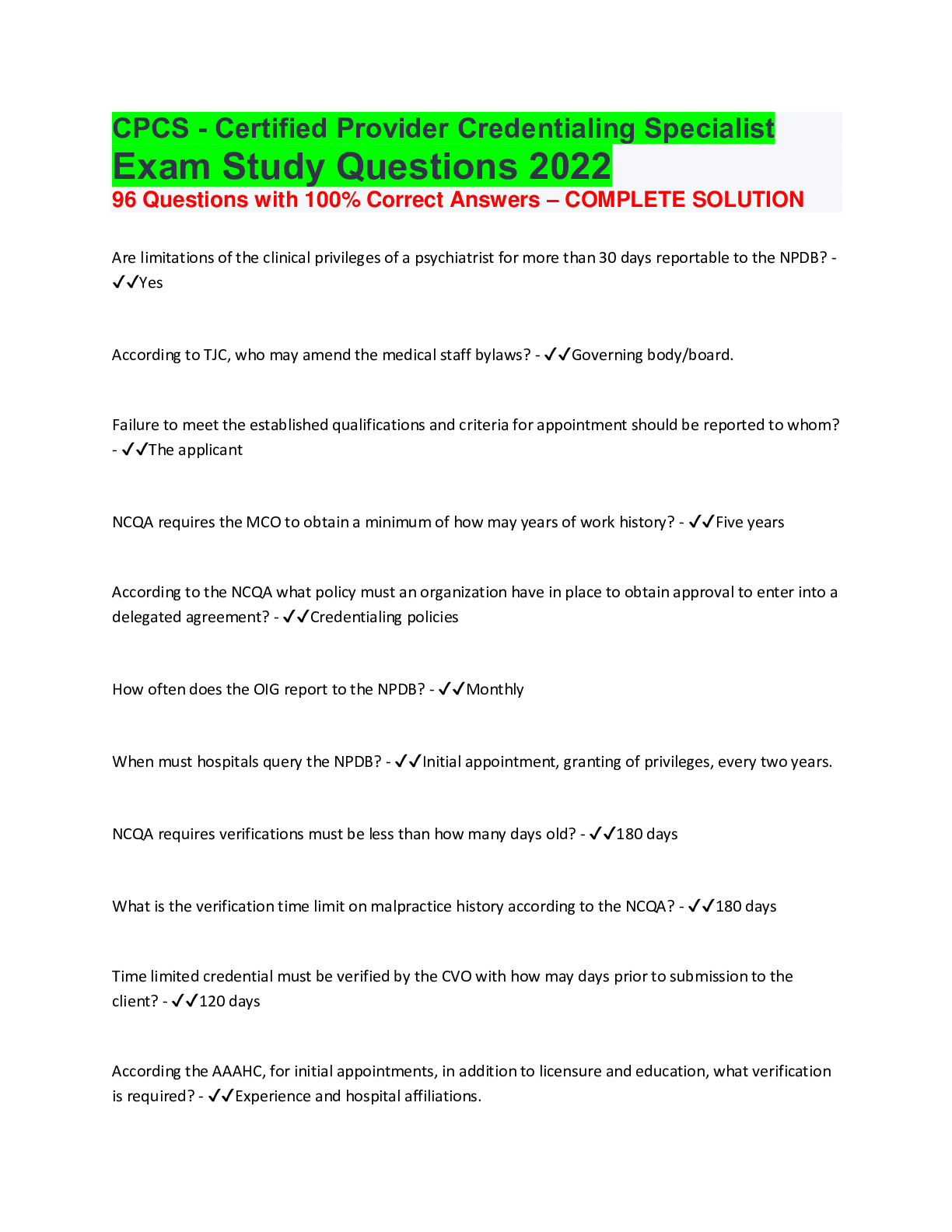
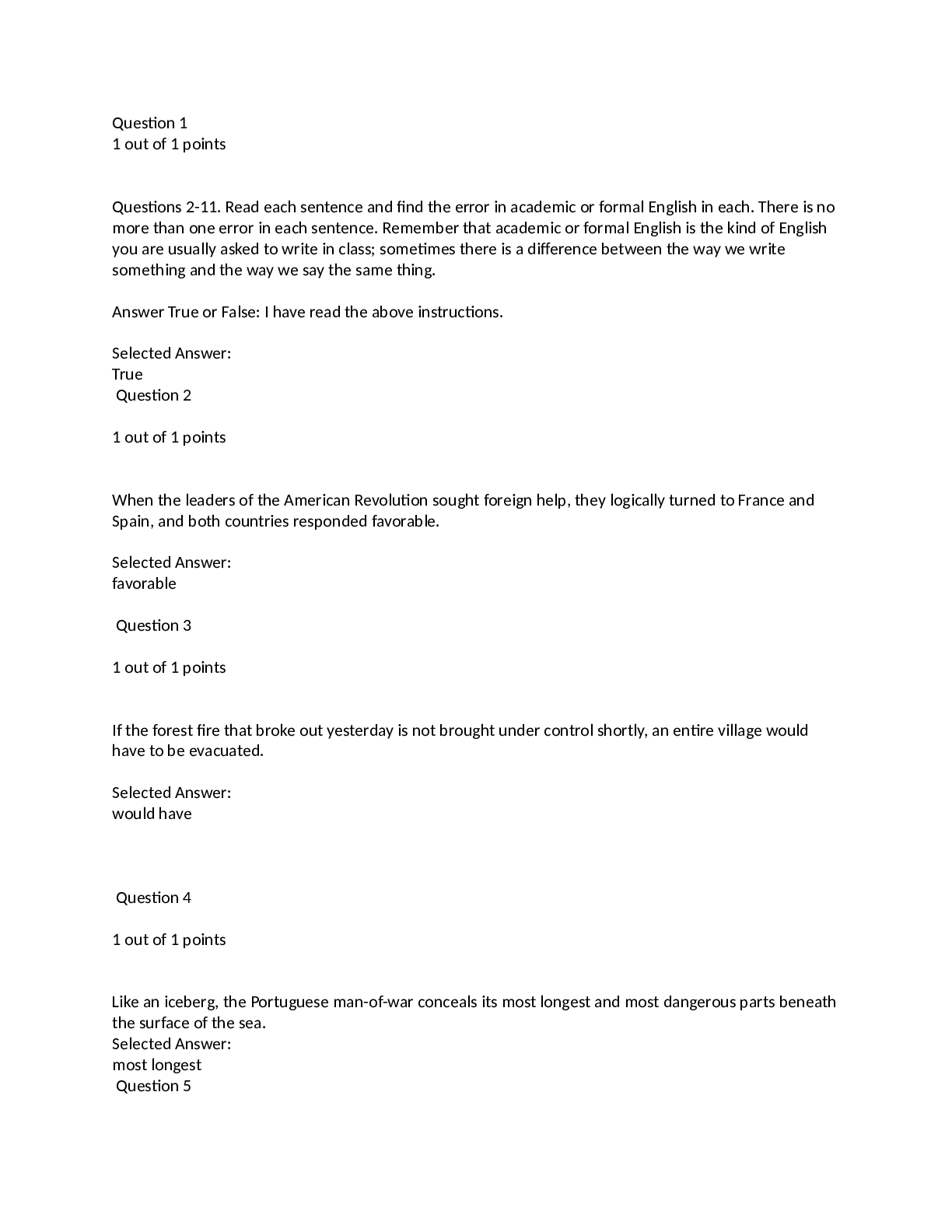
.png)
